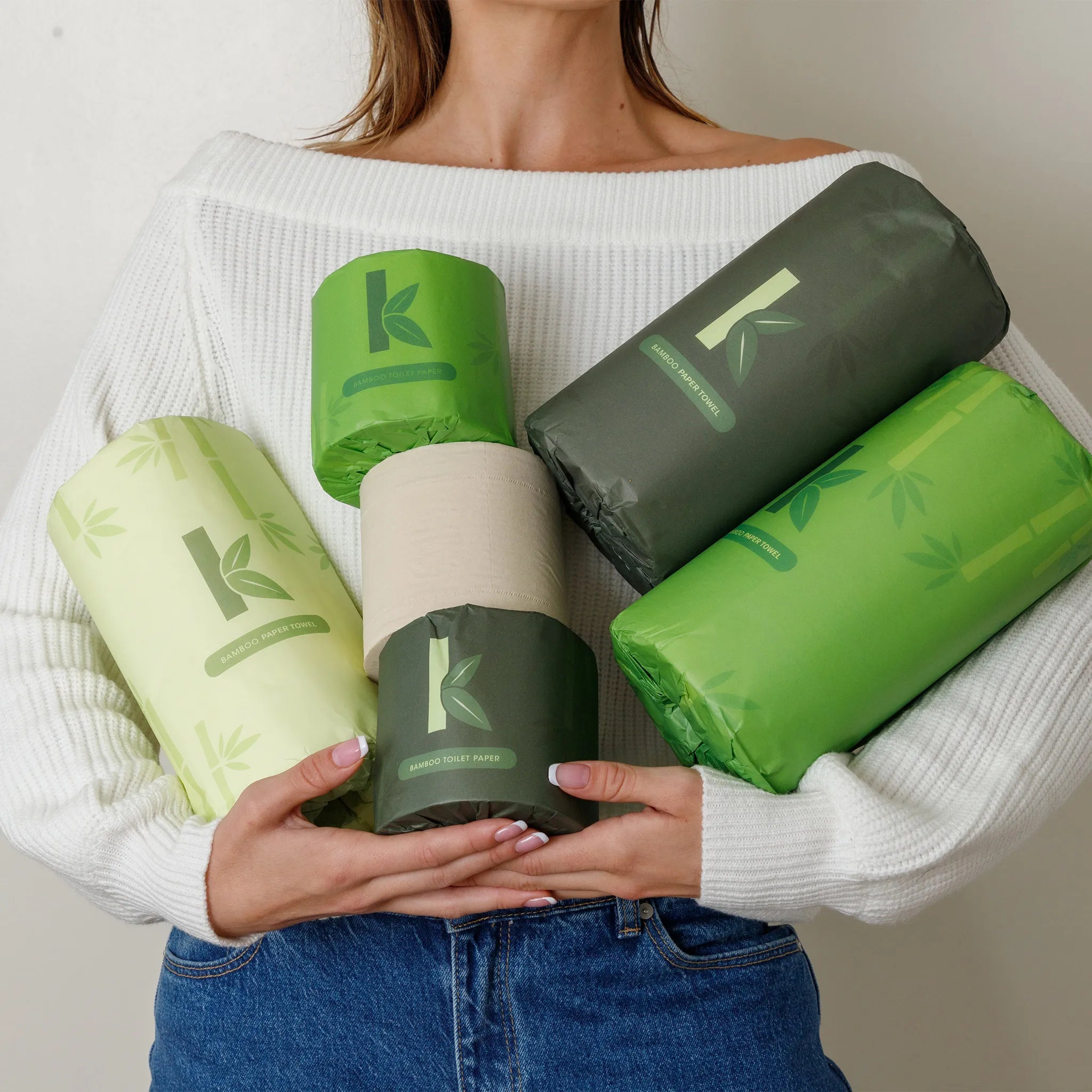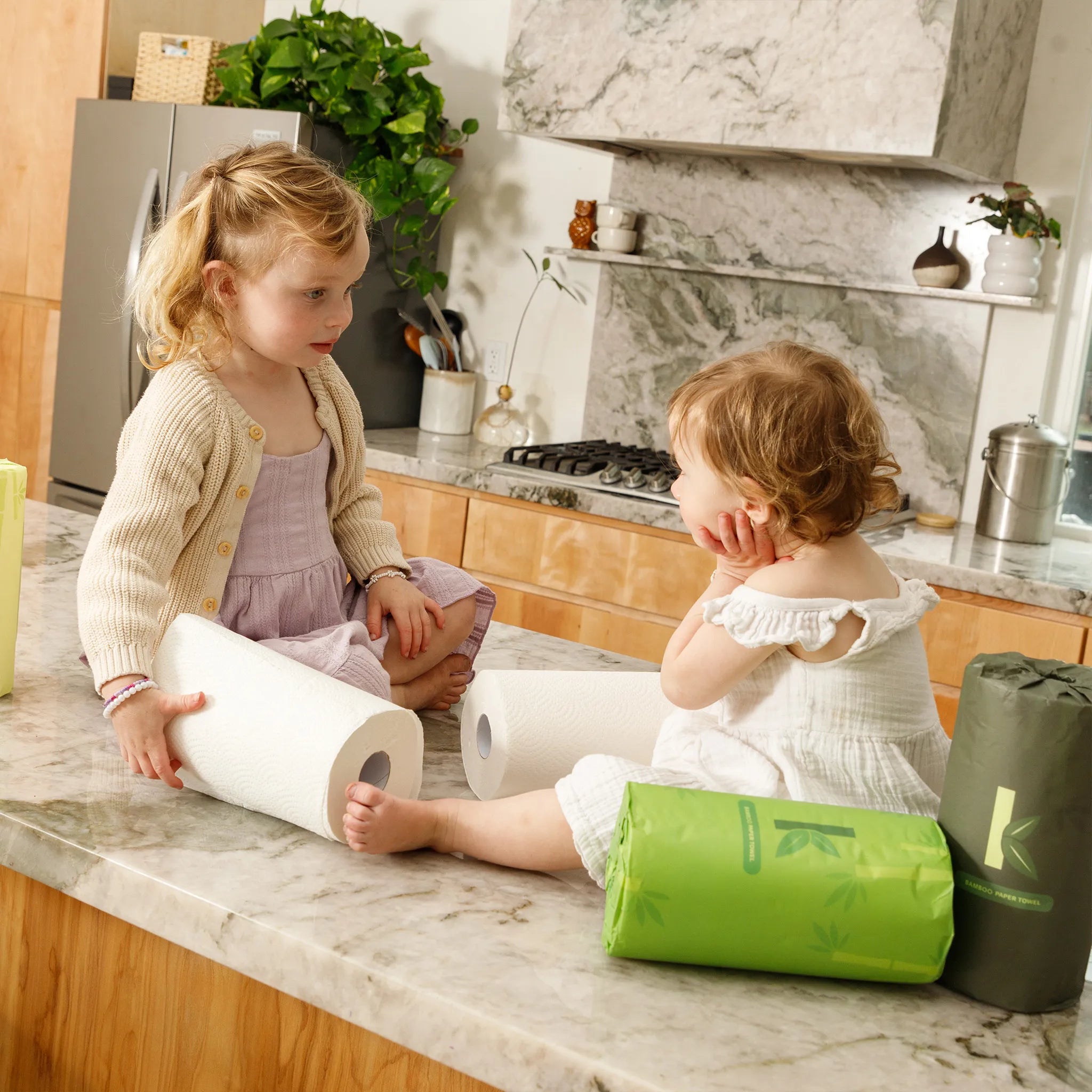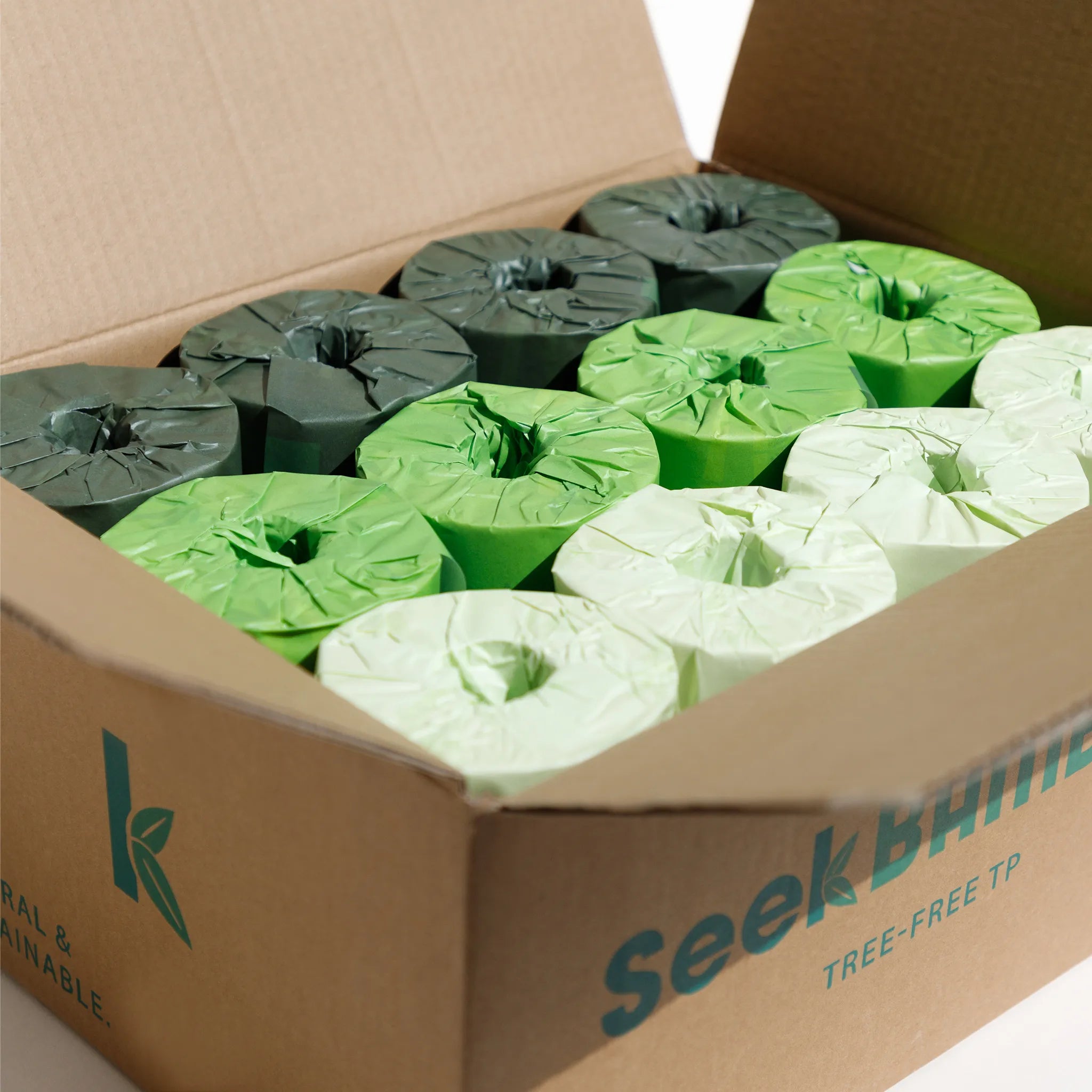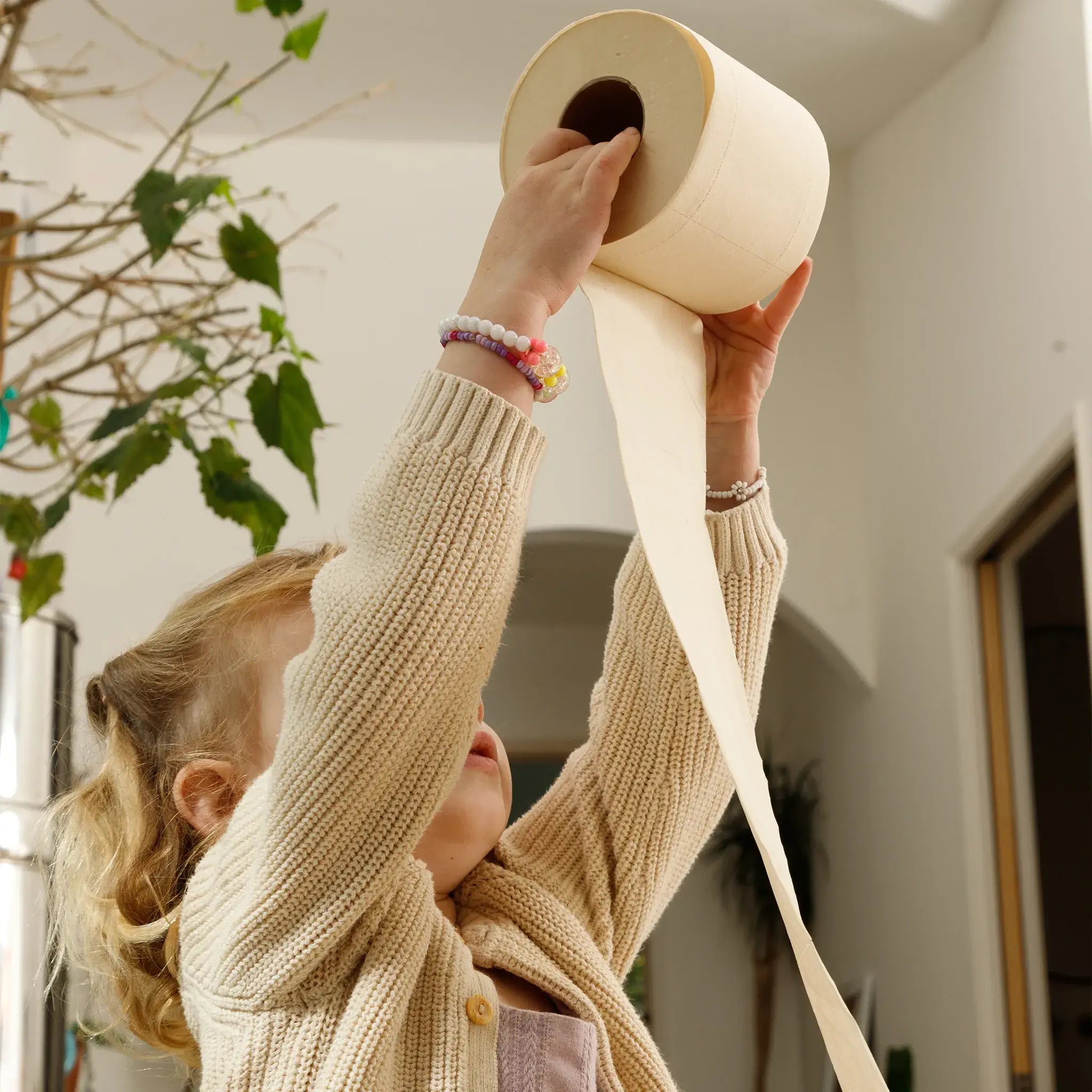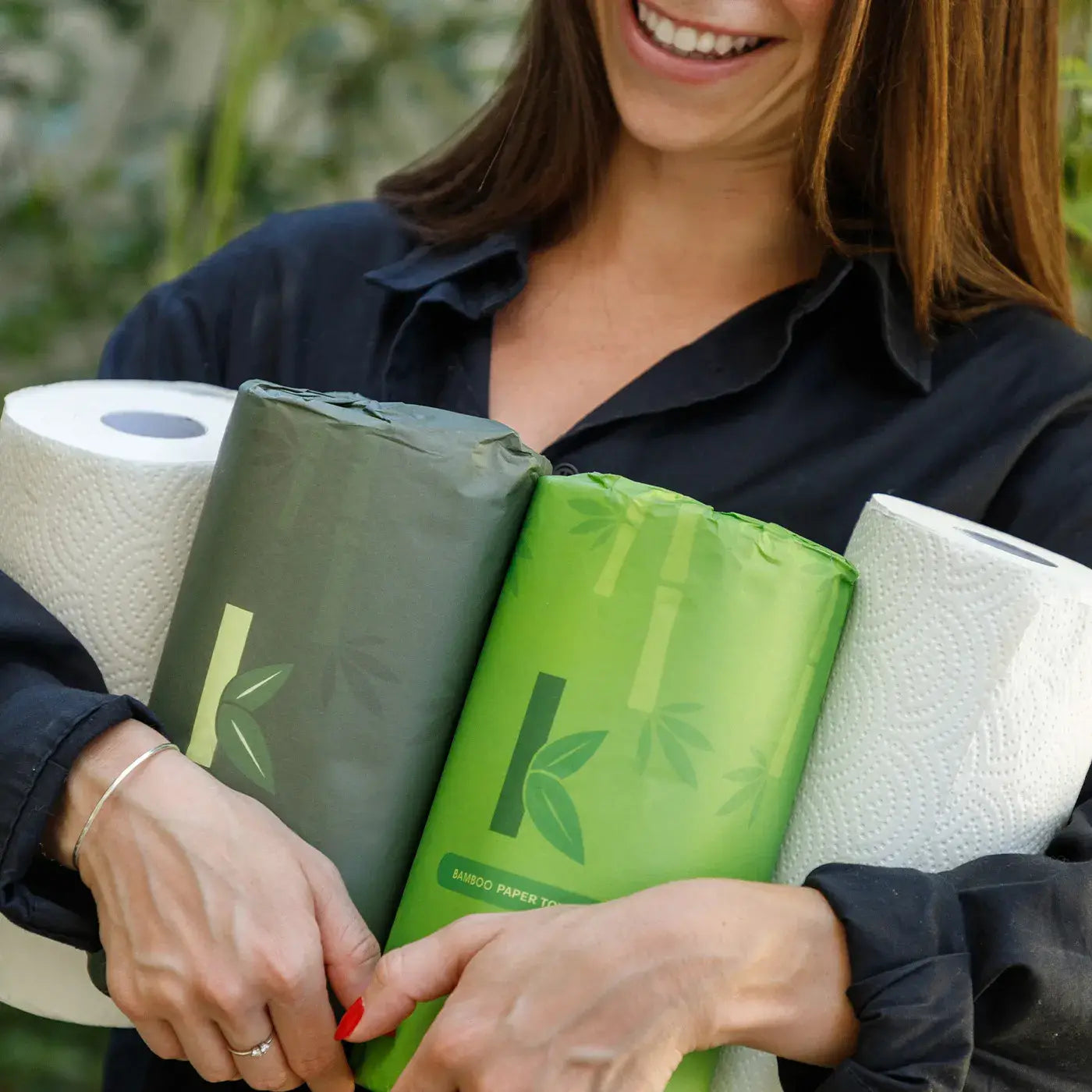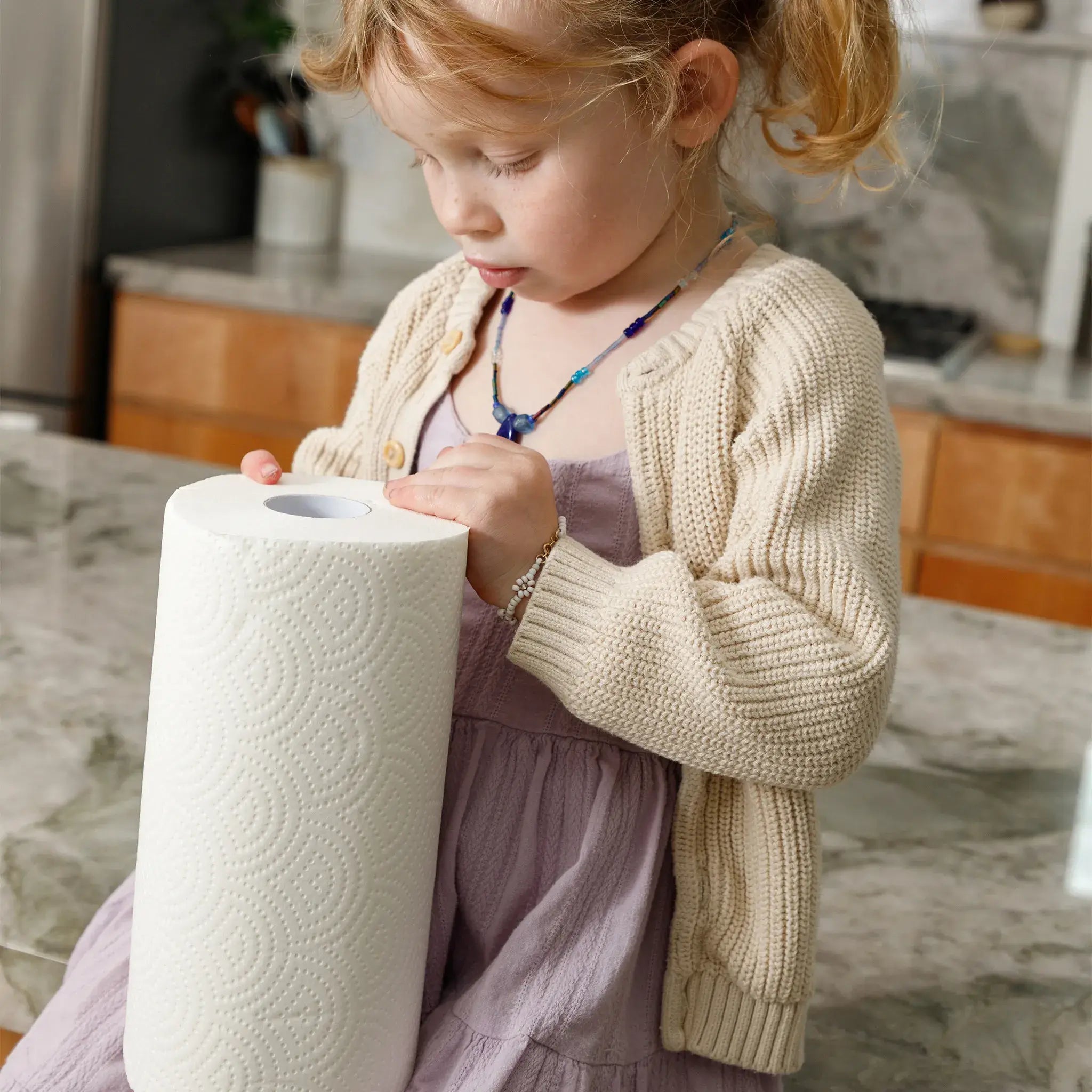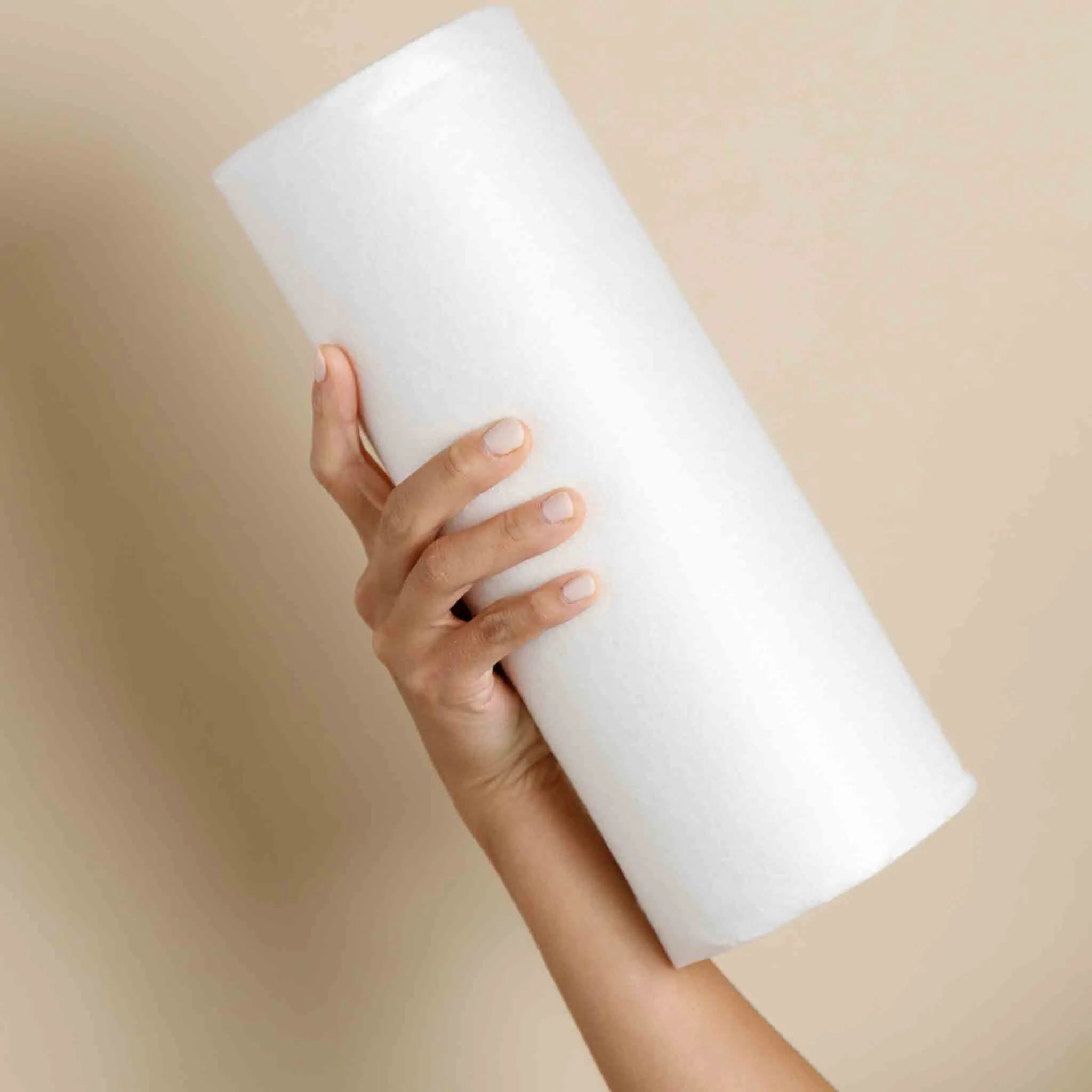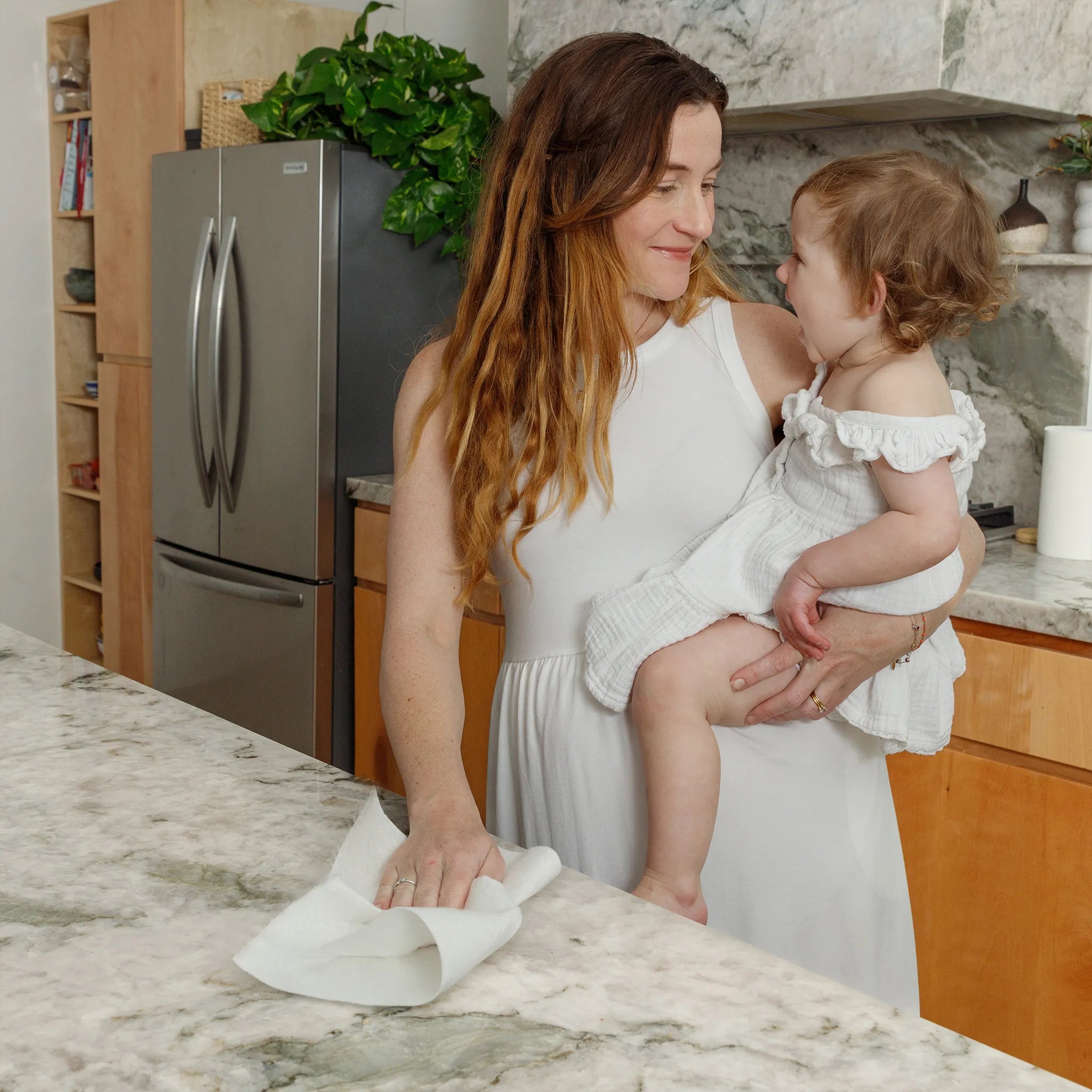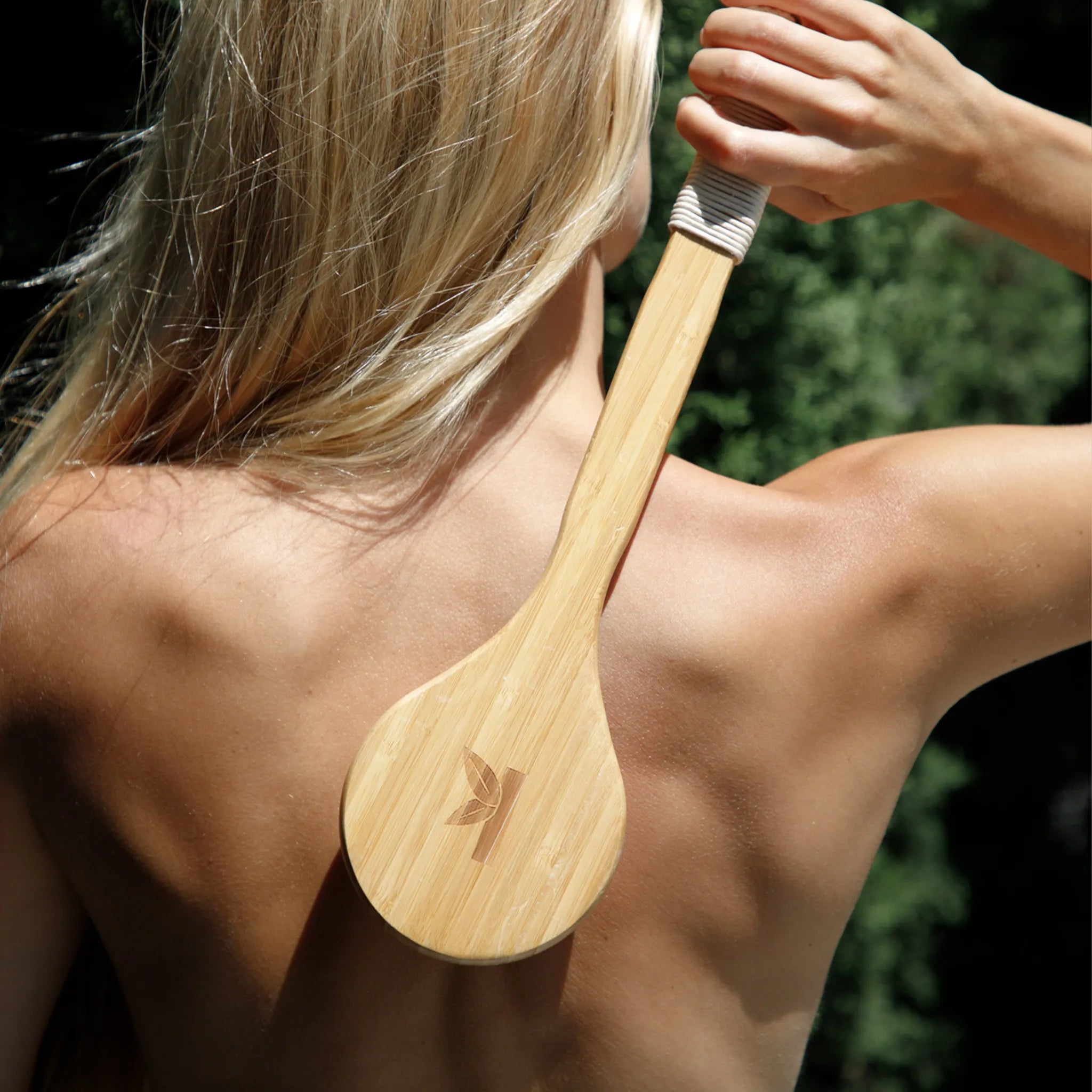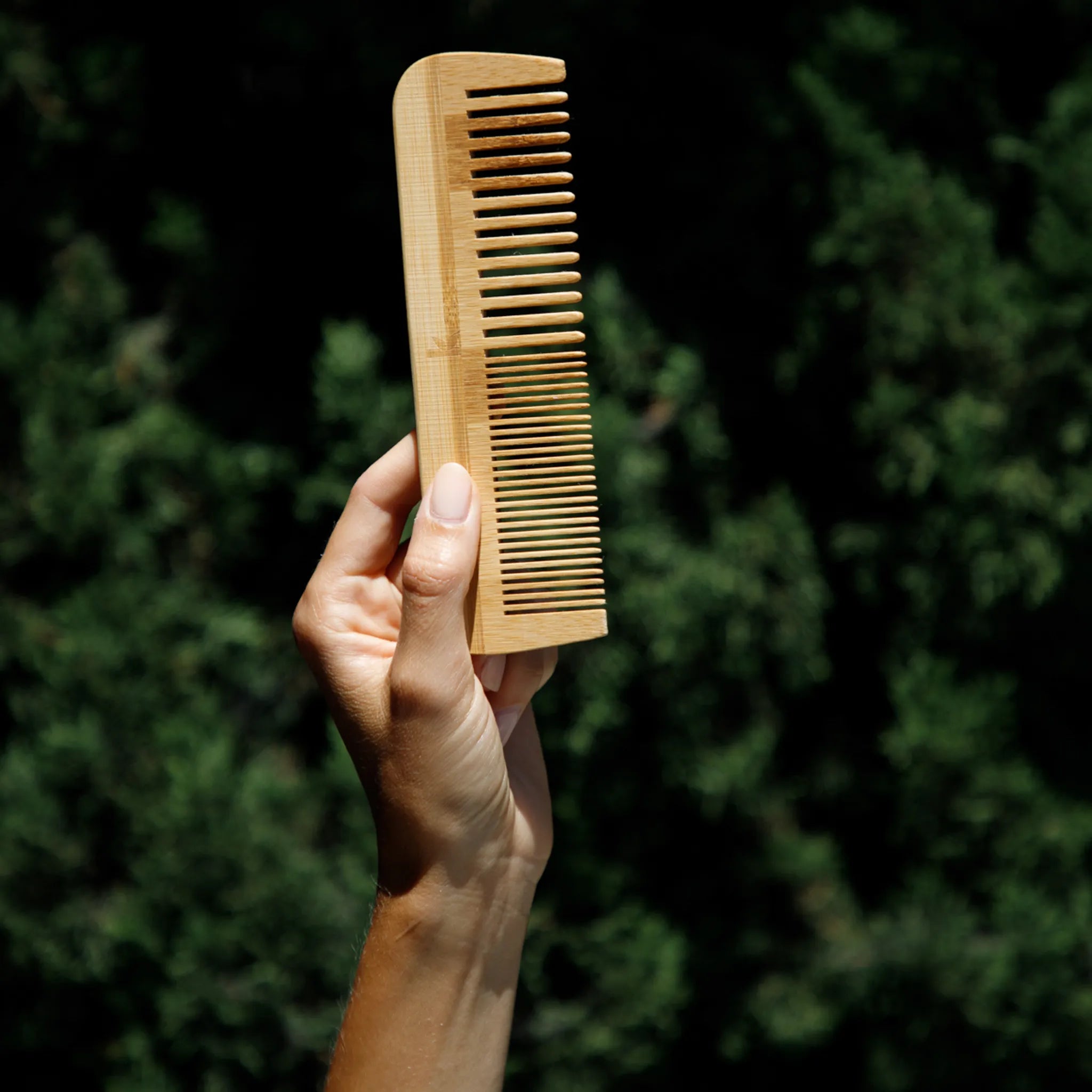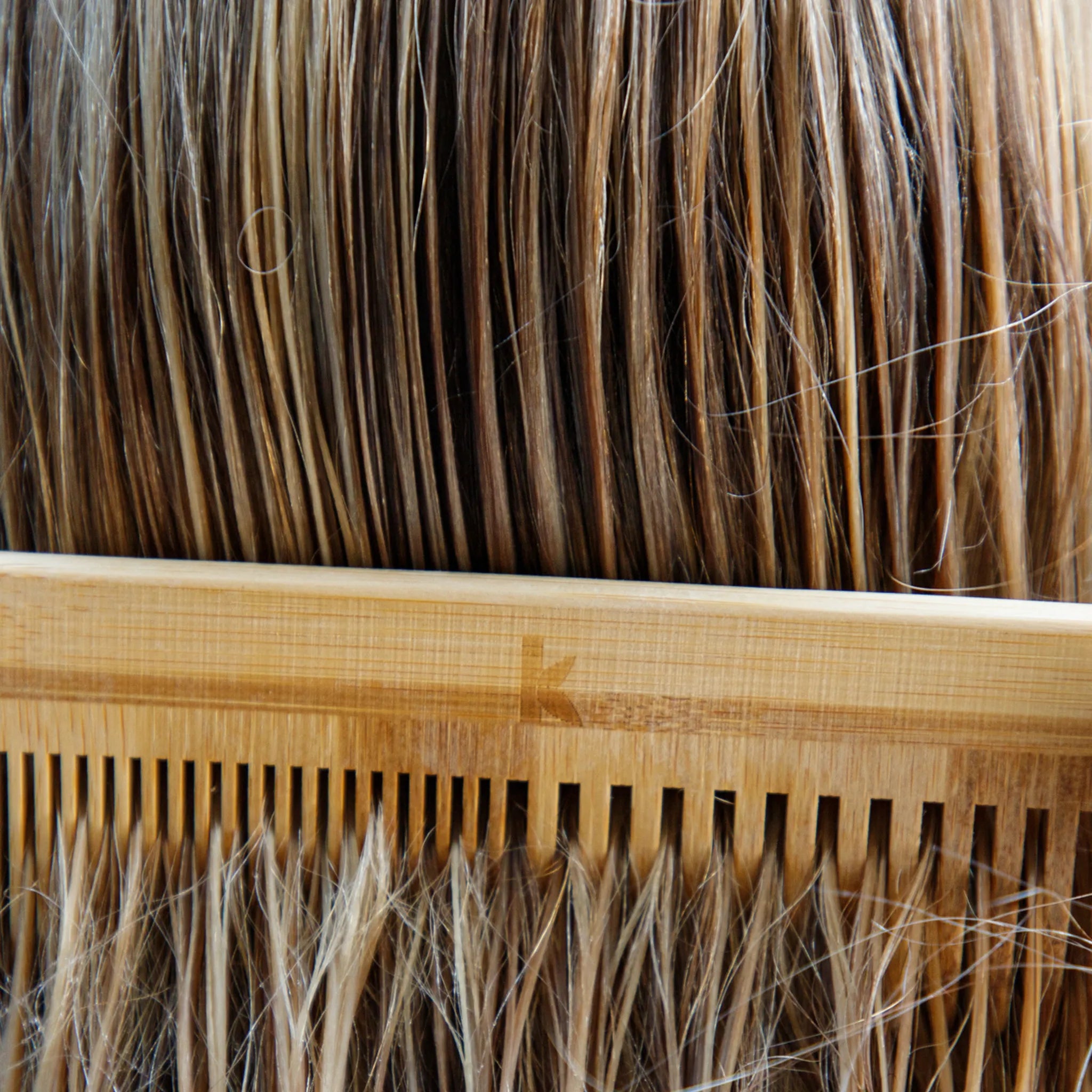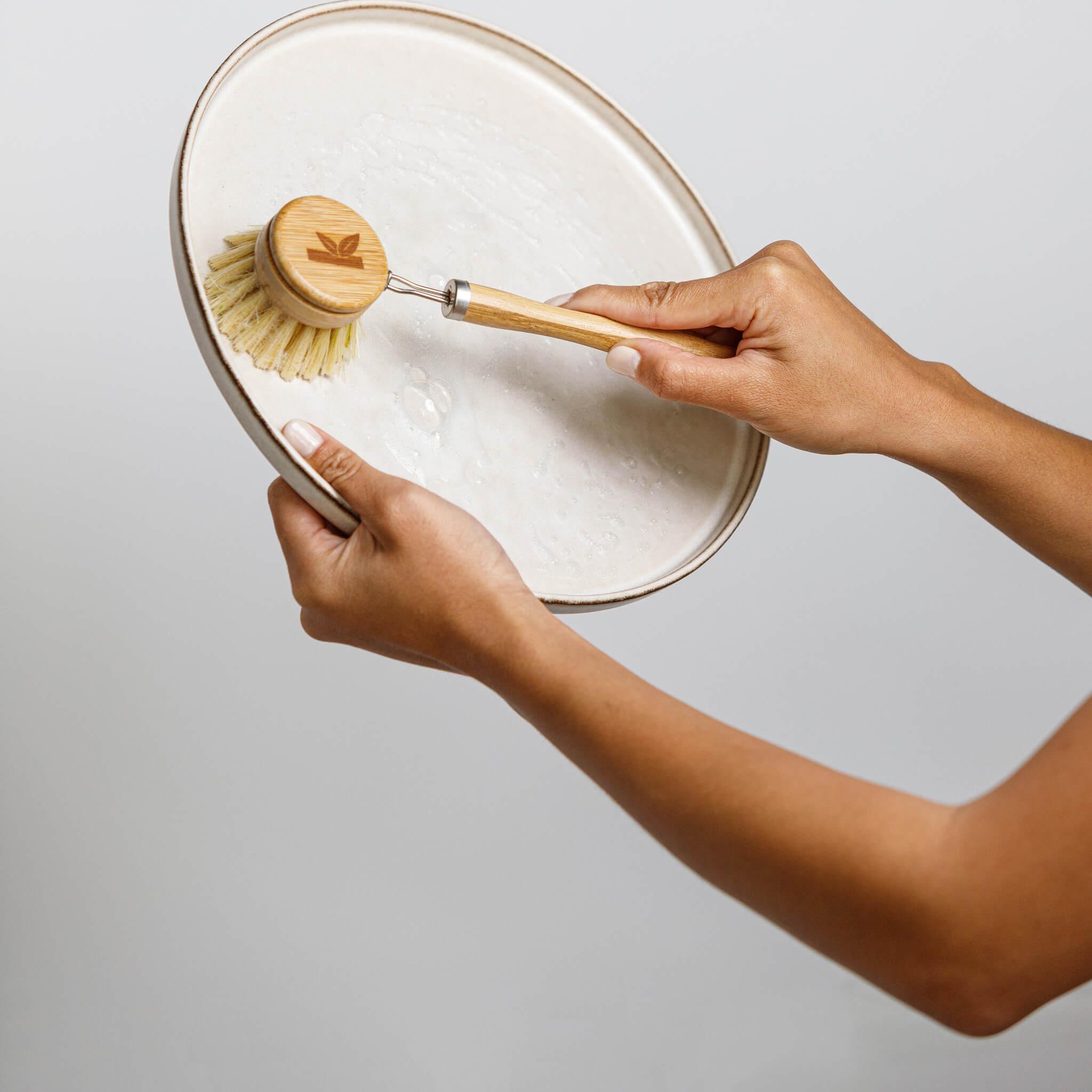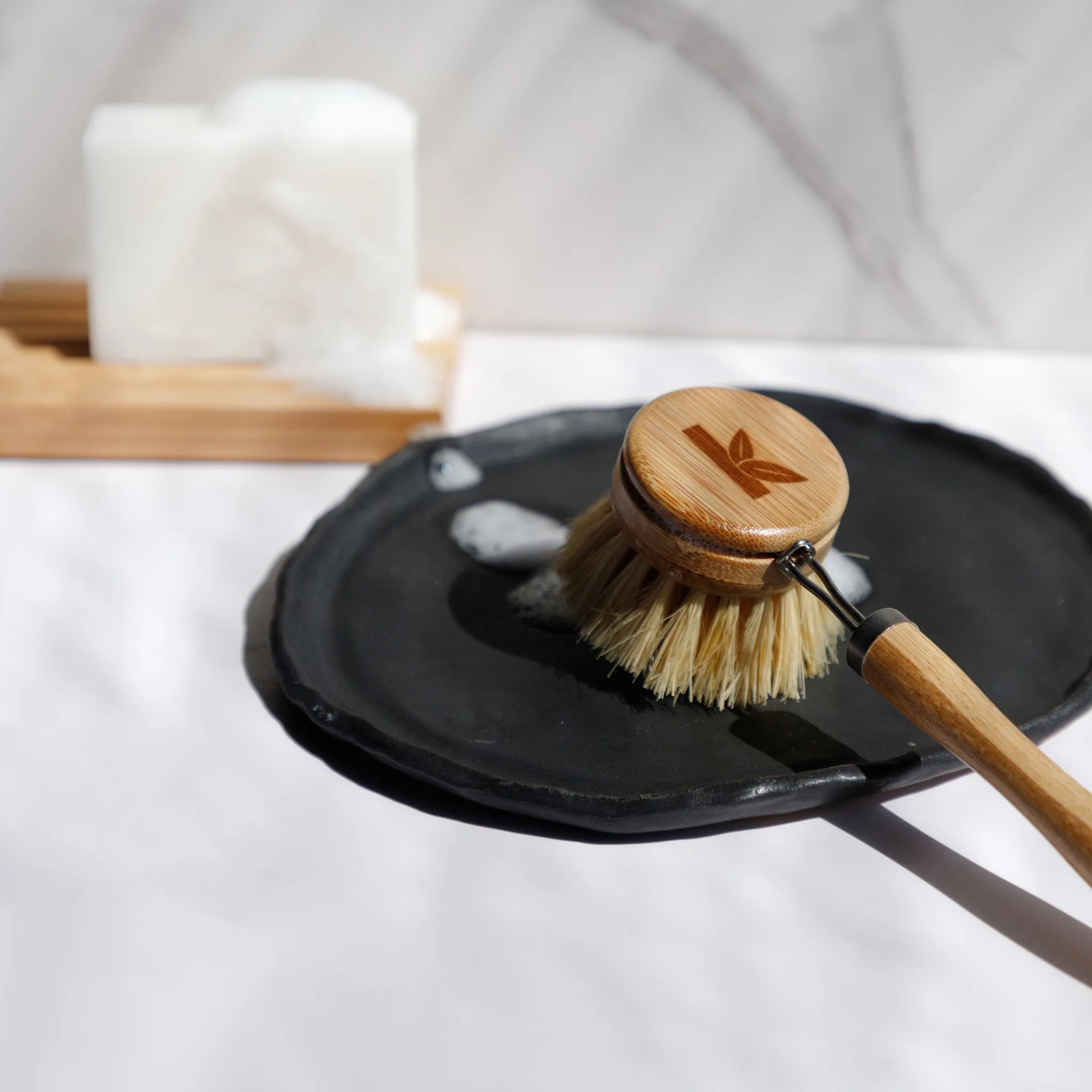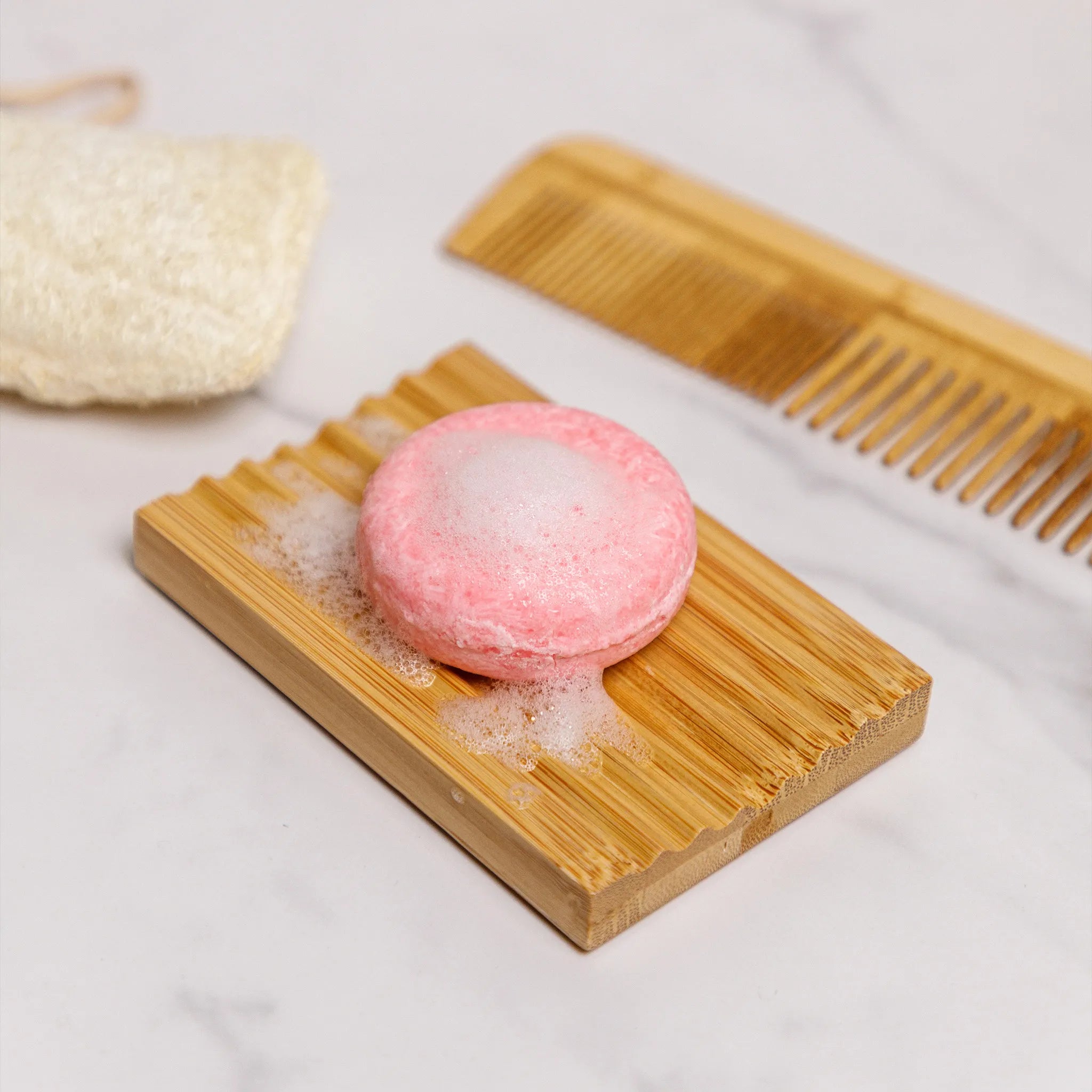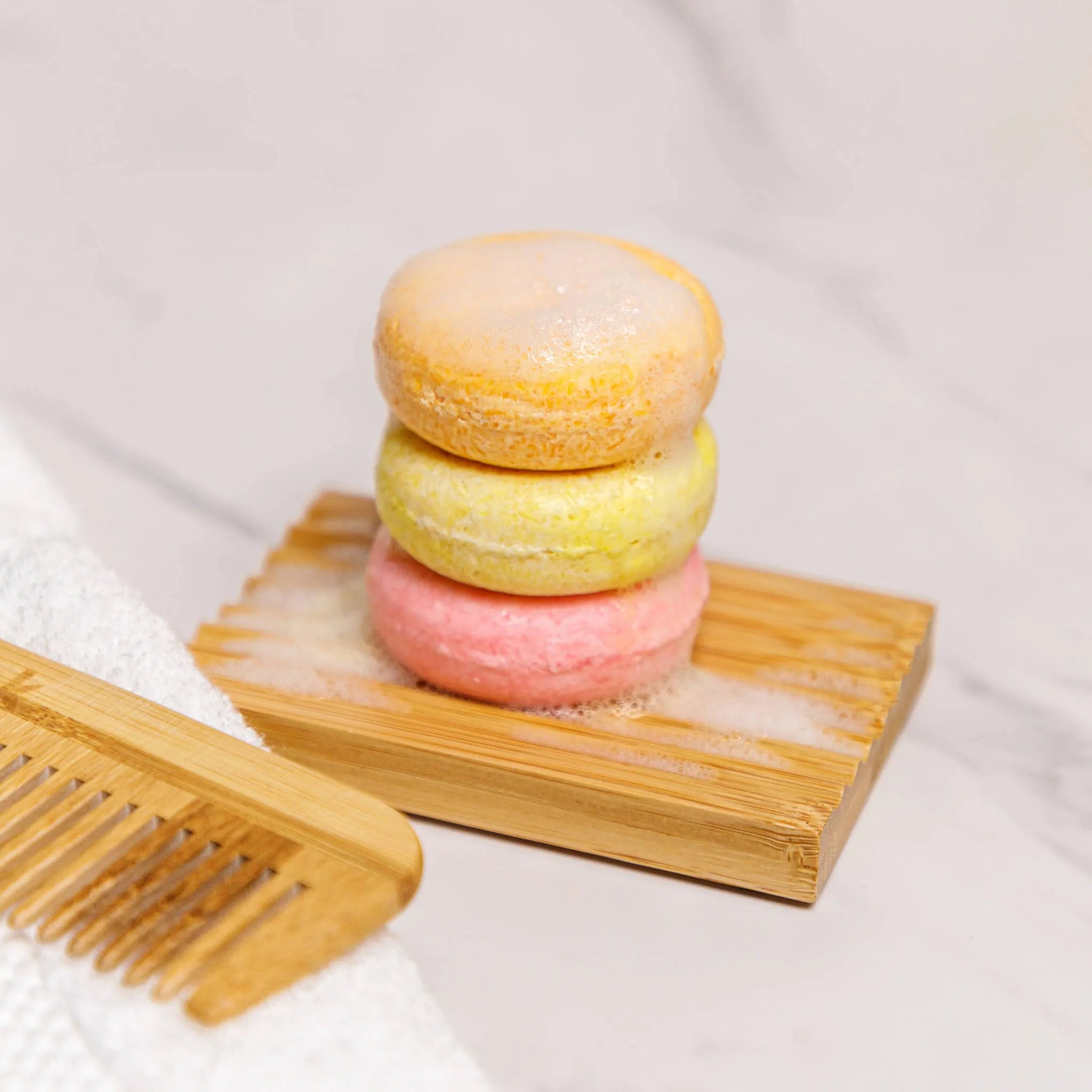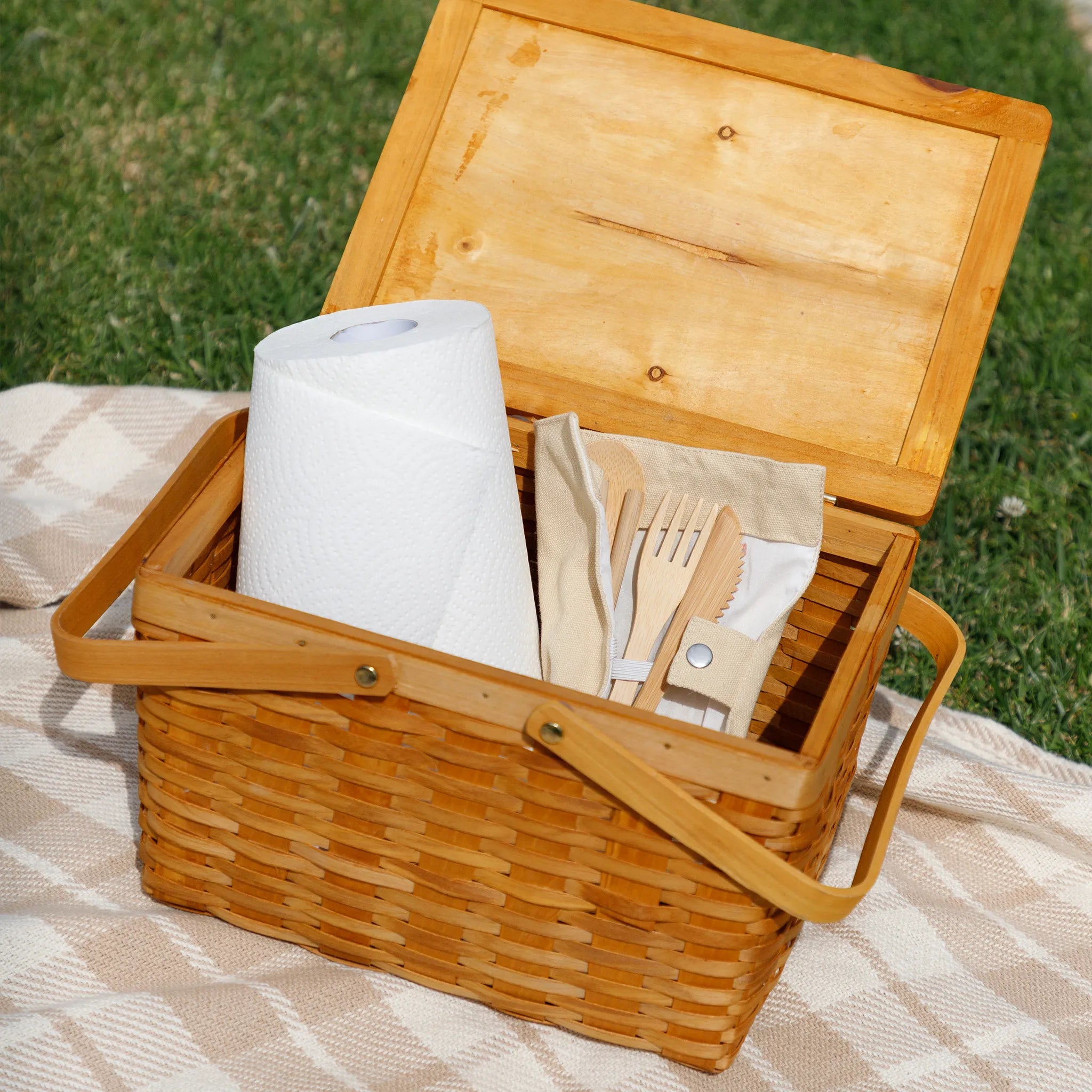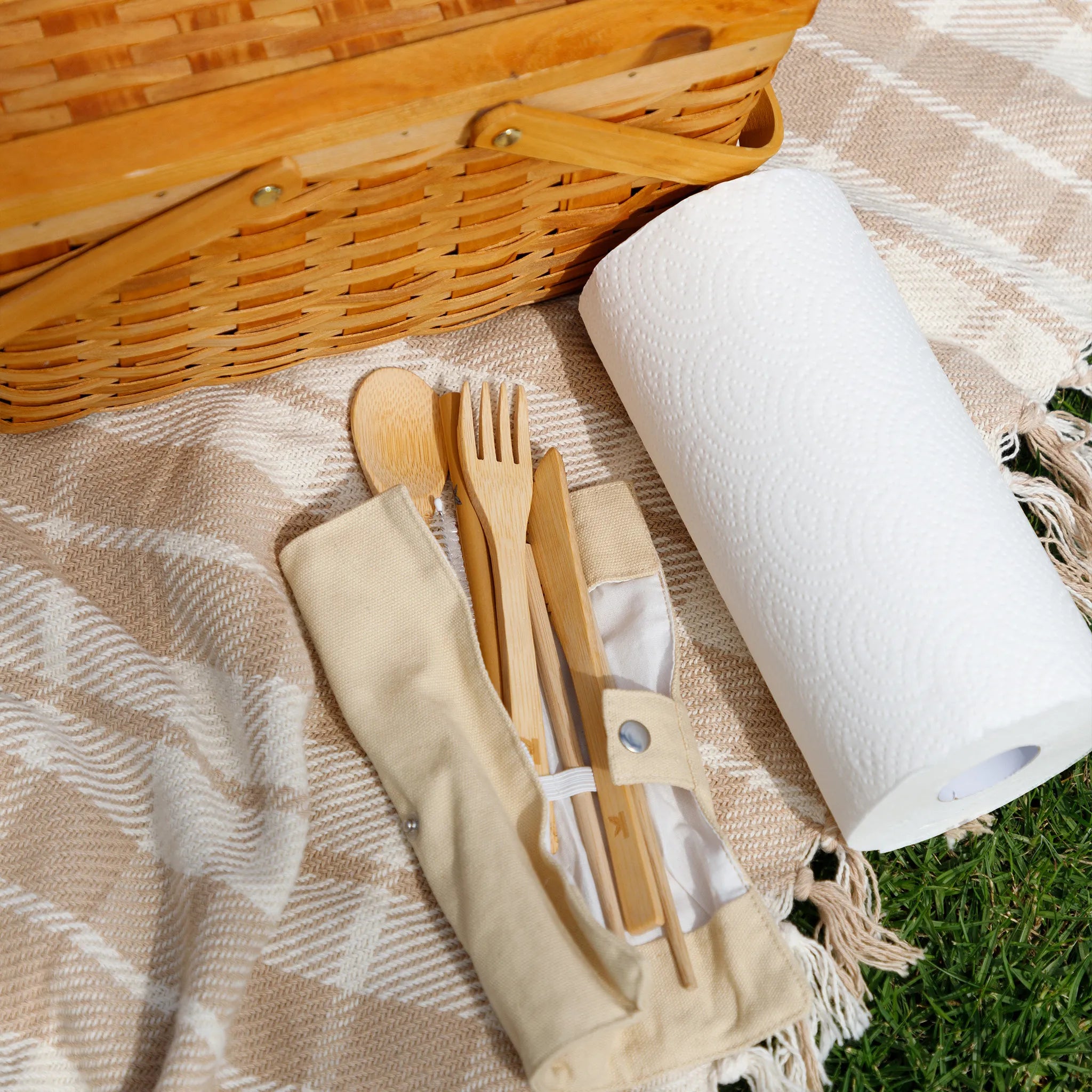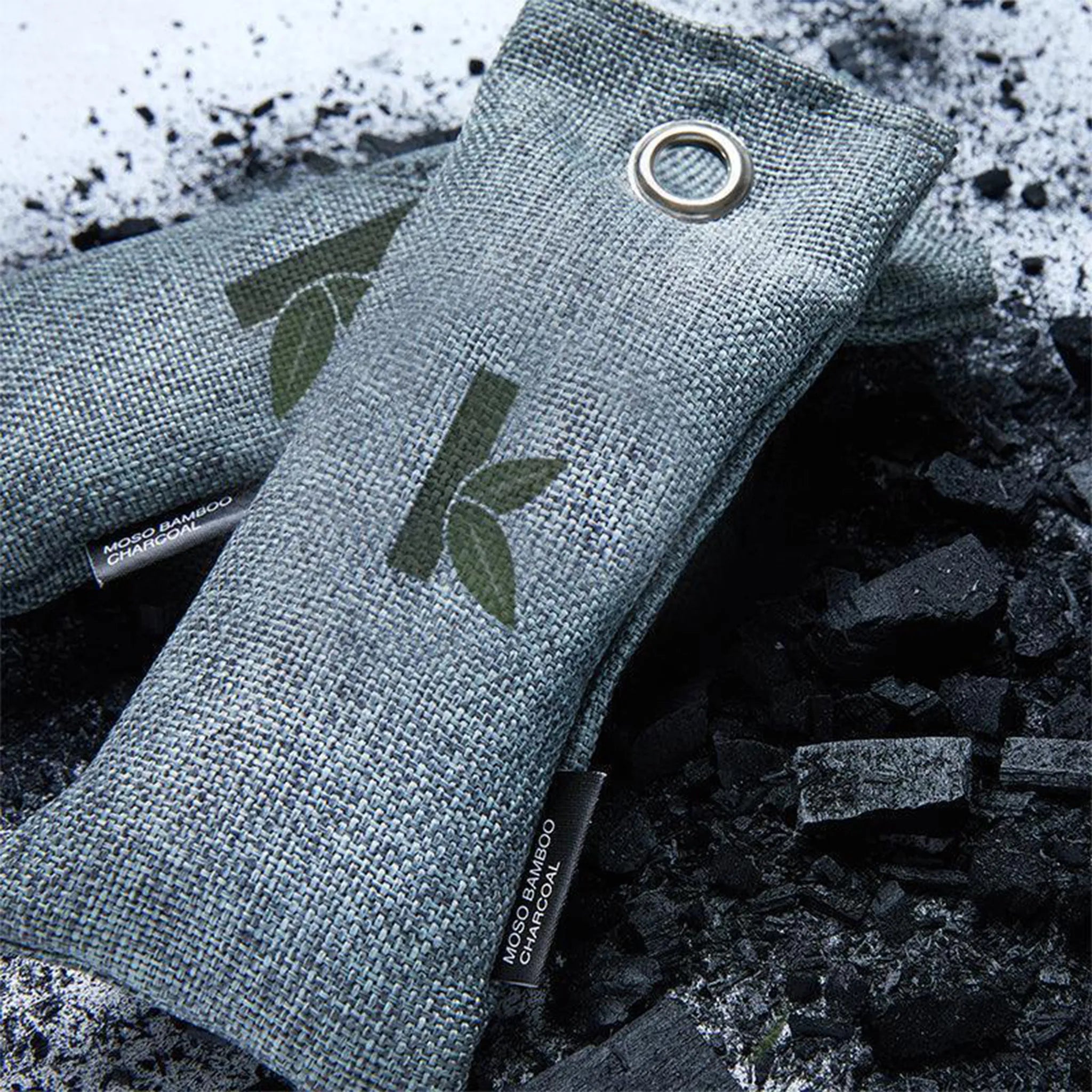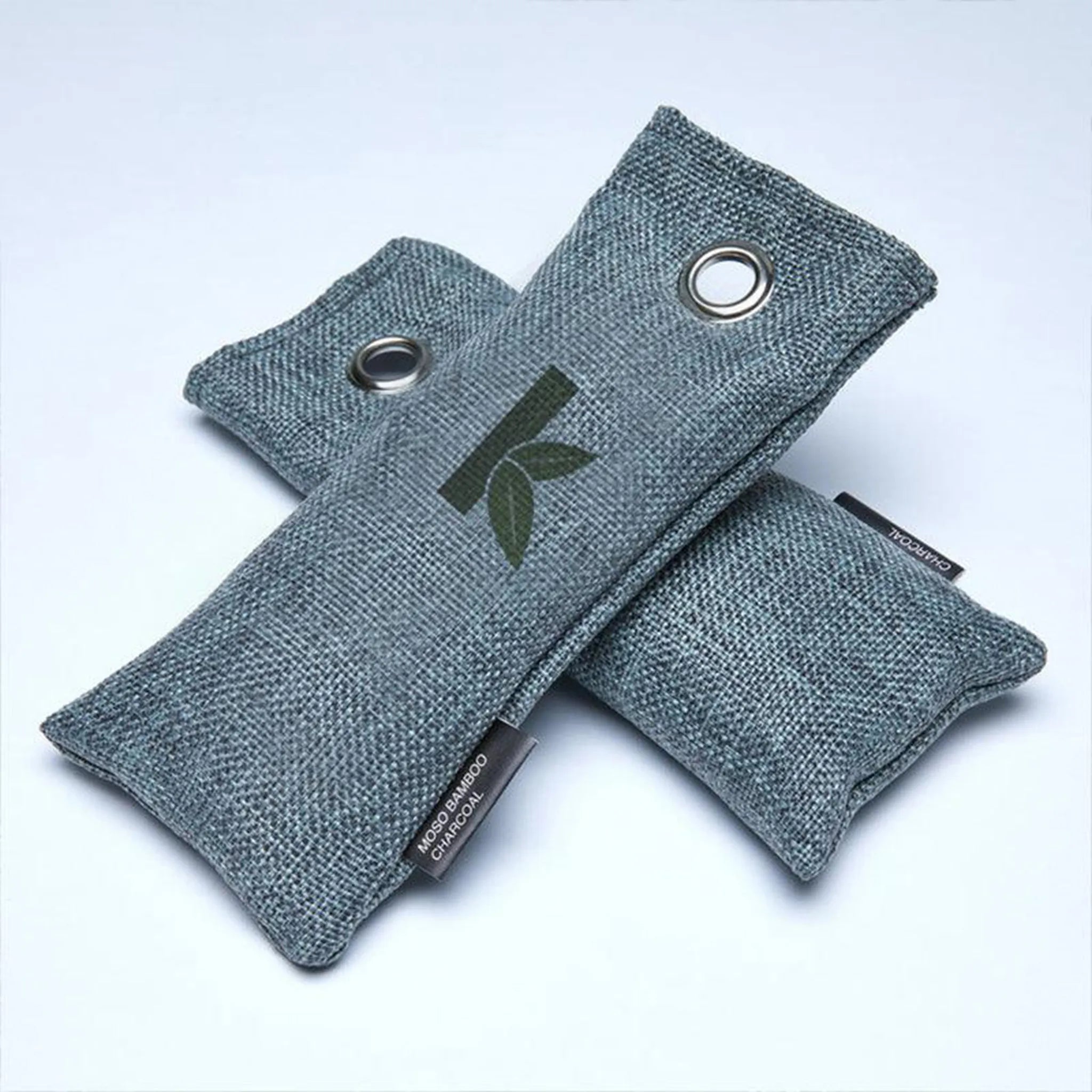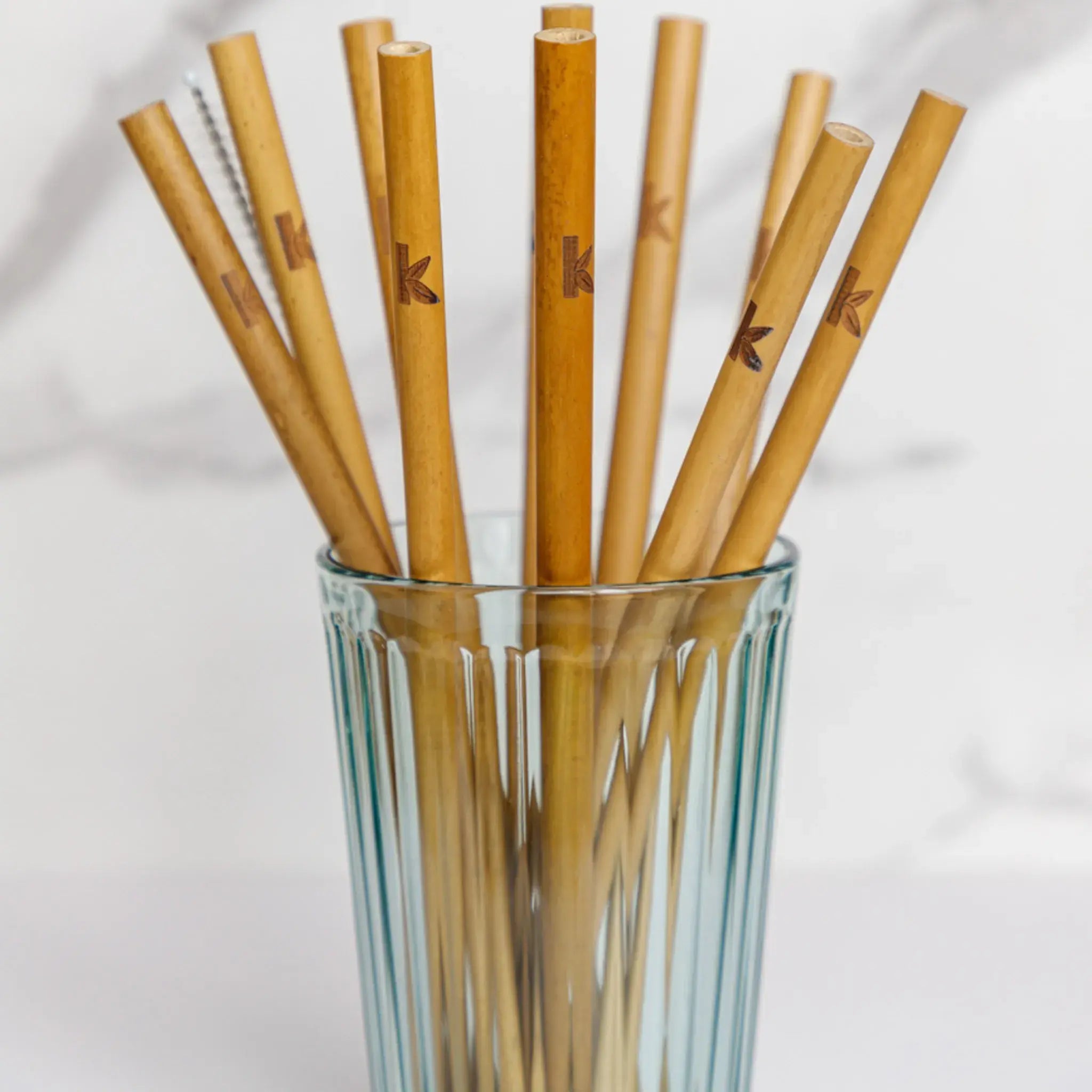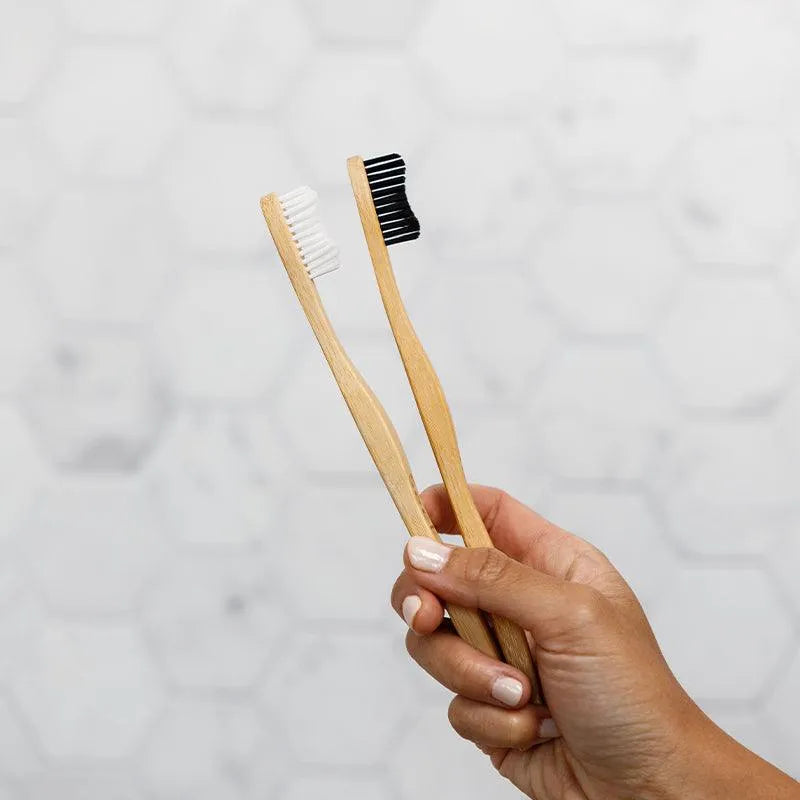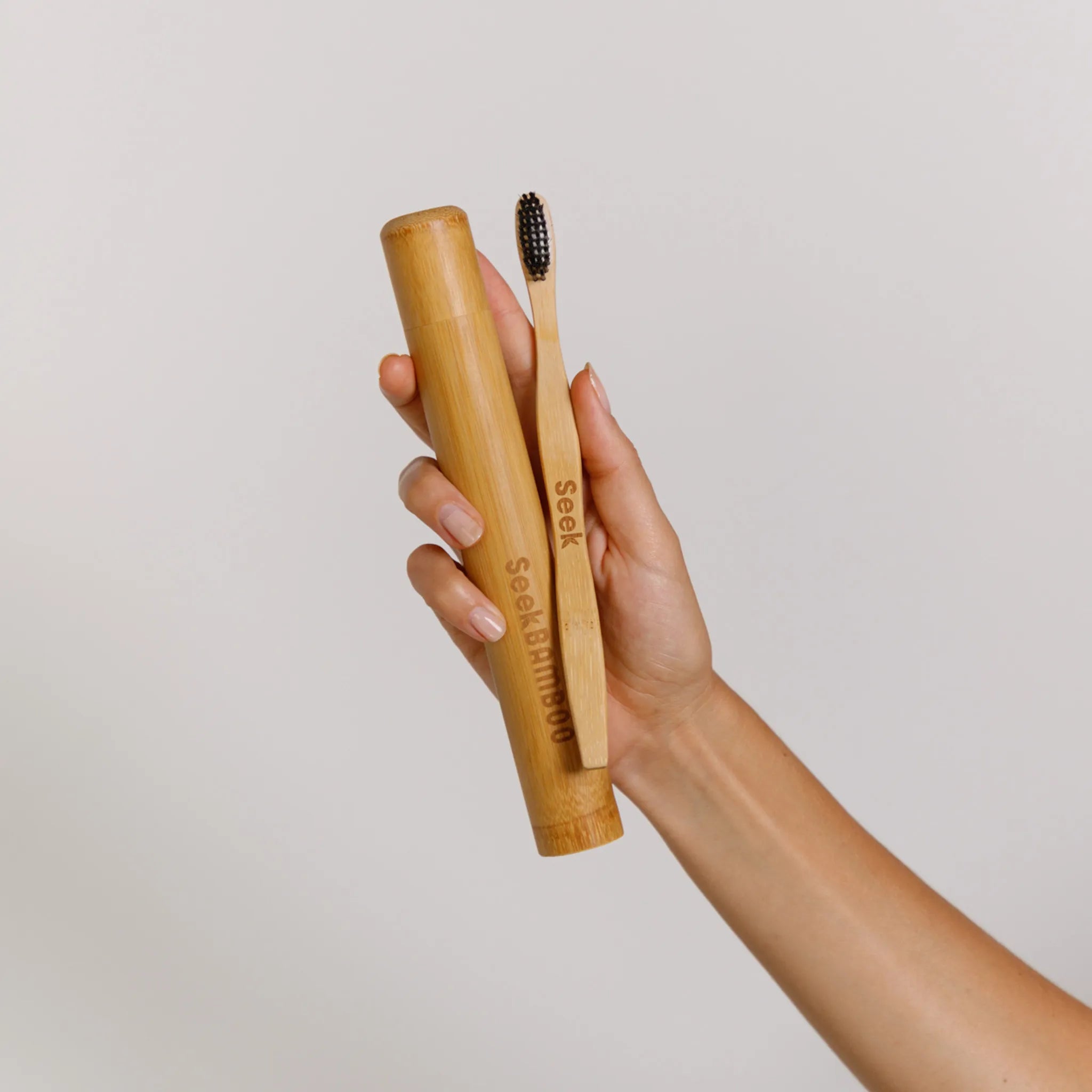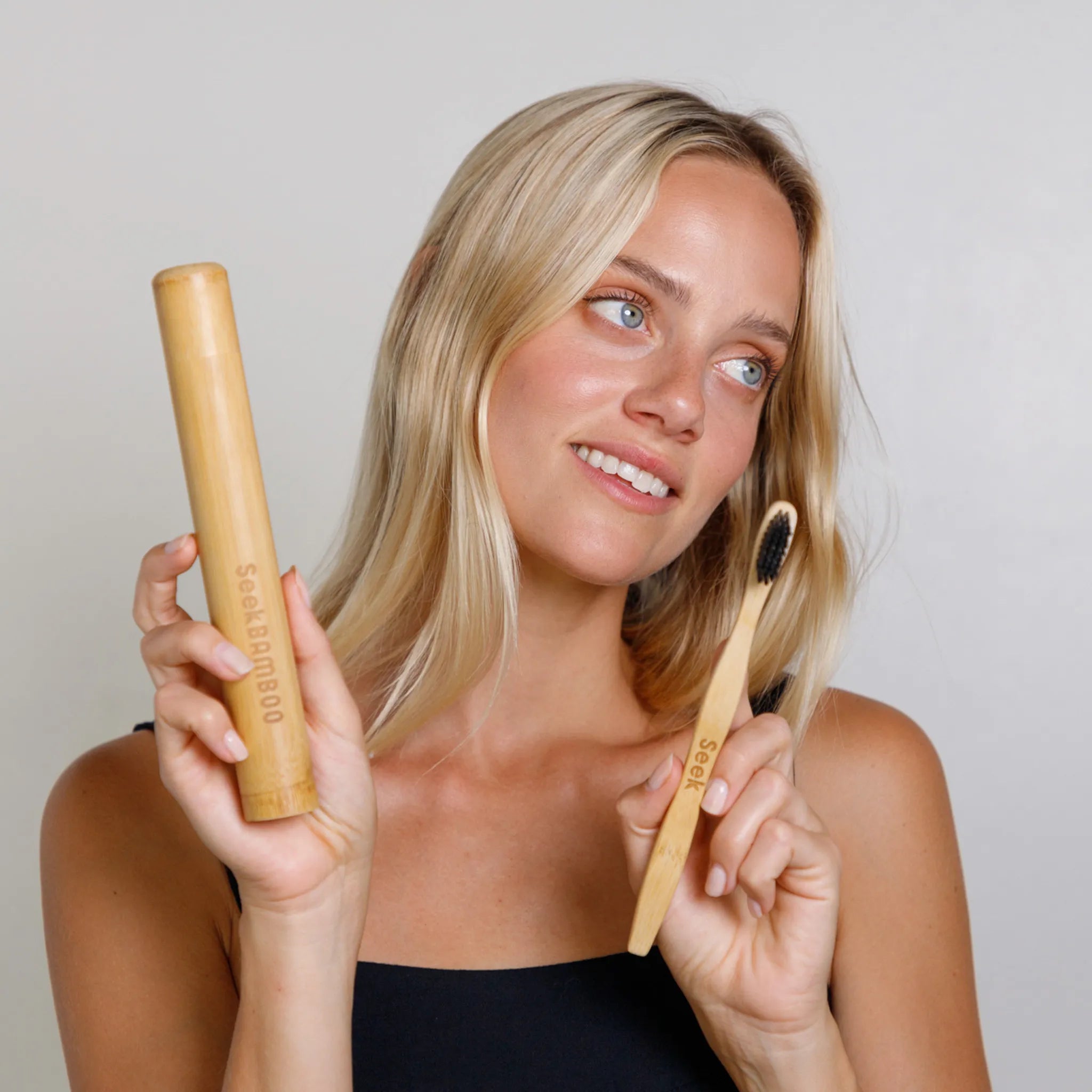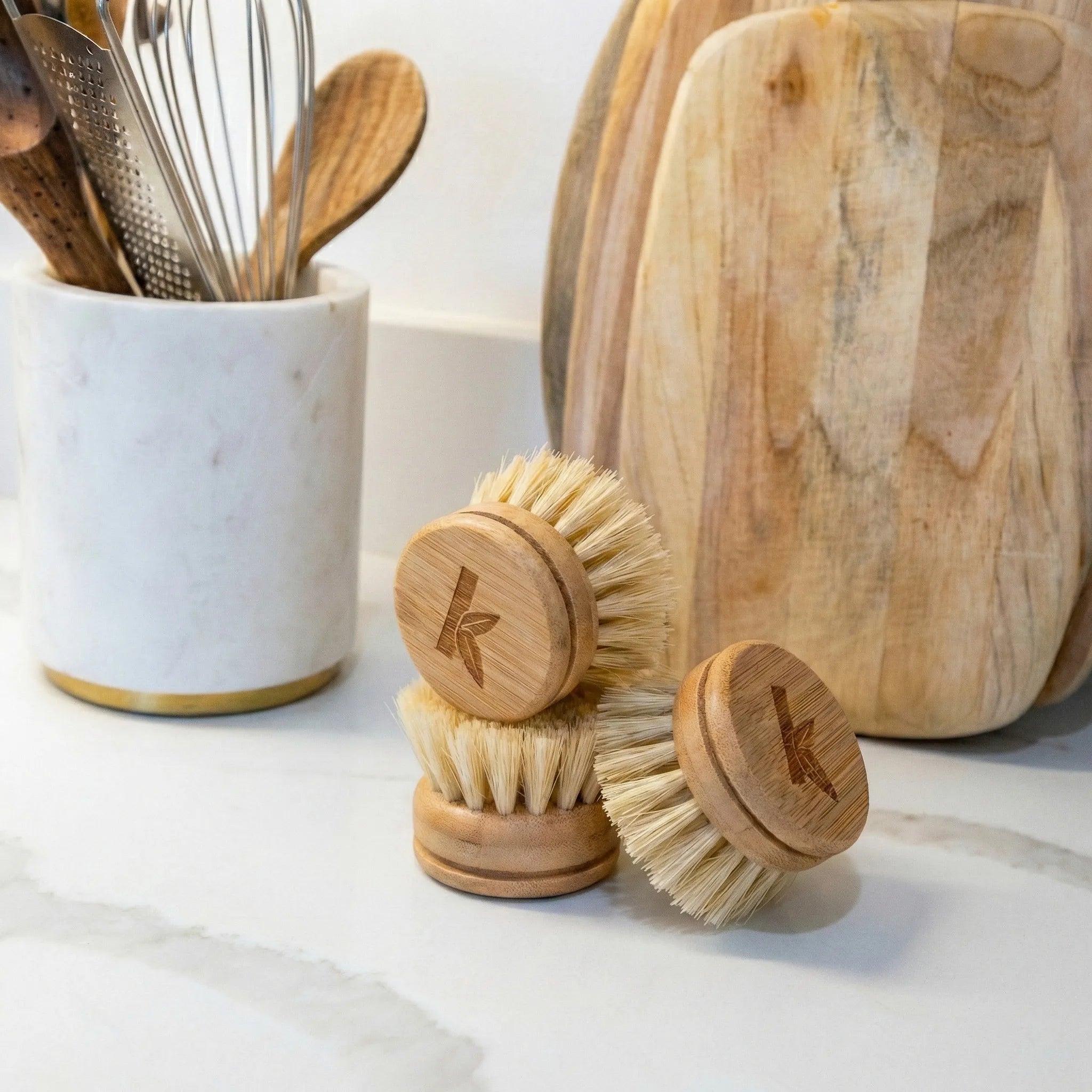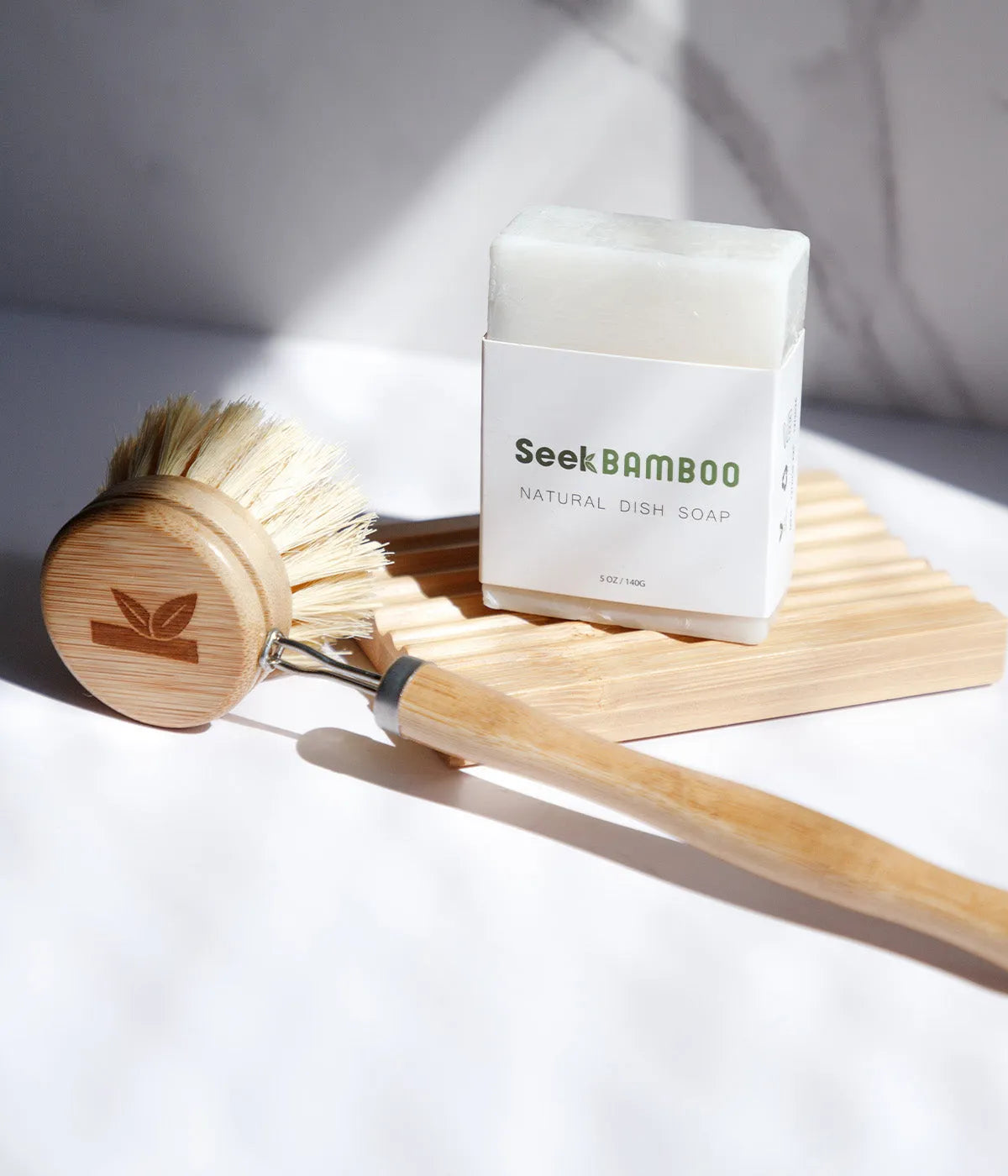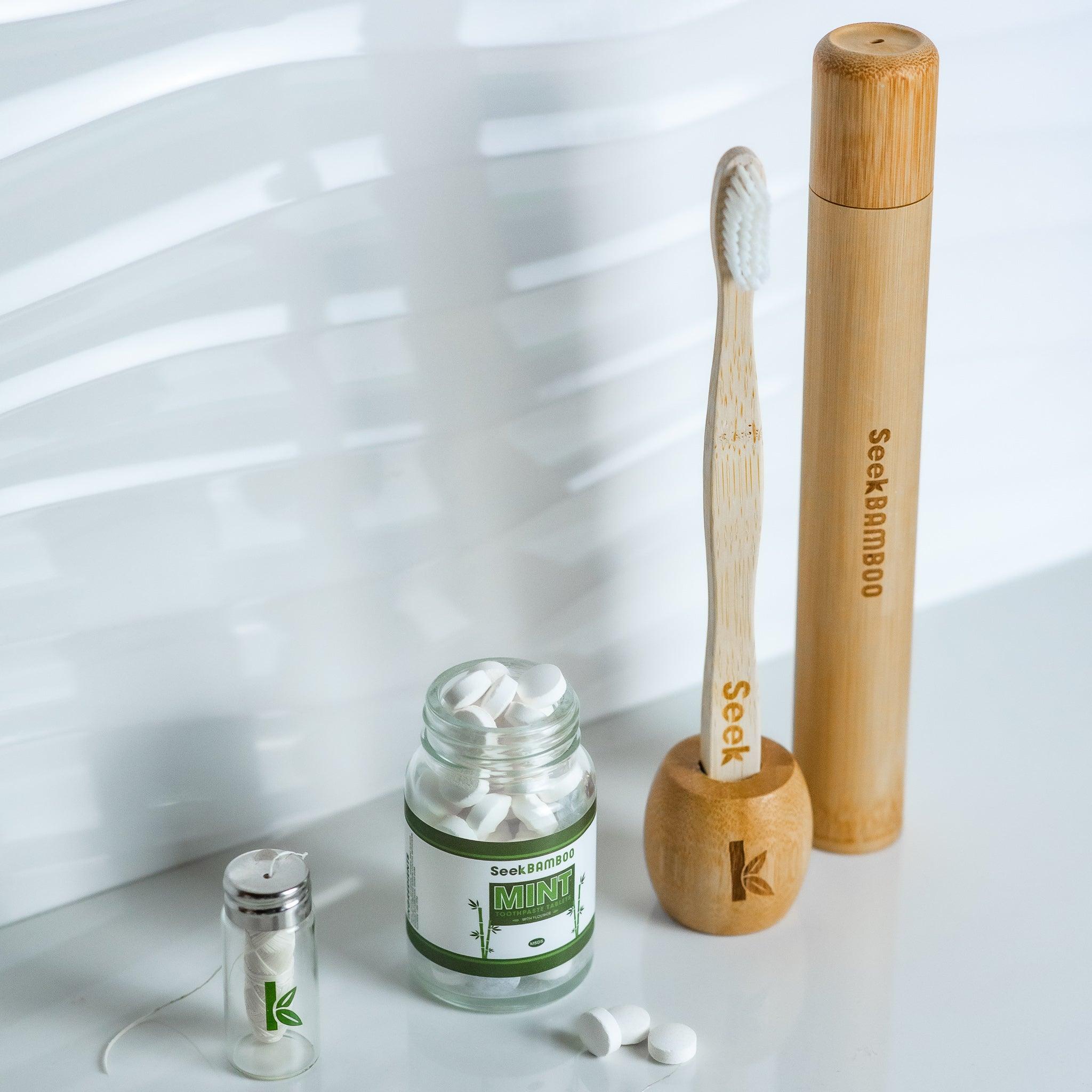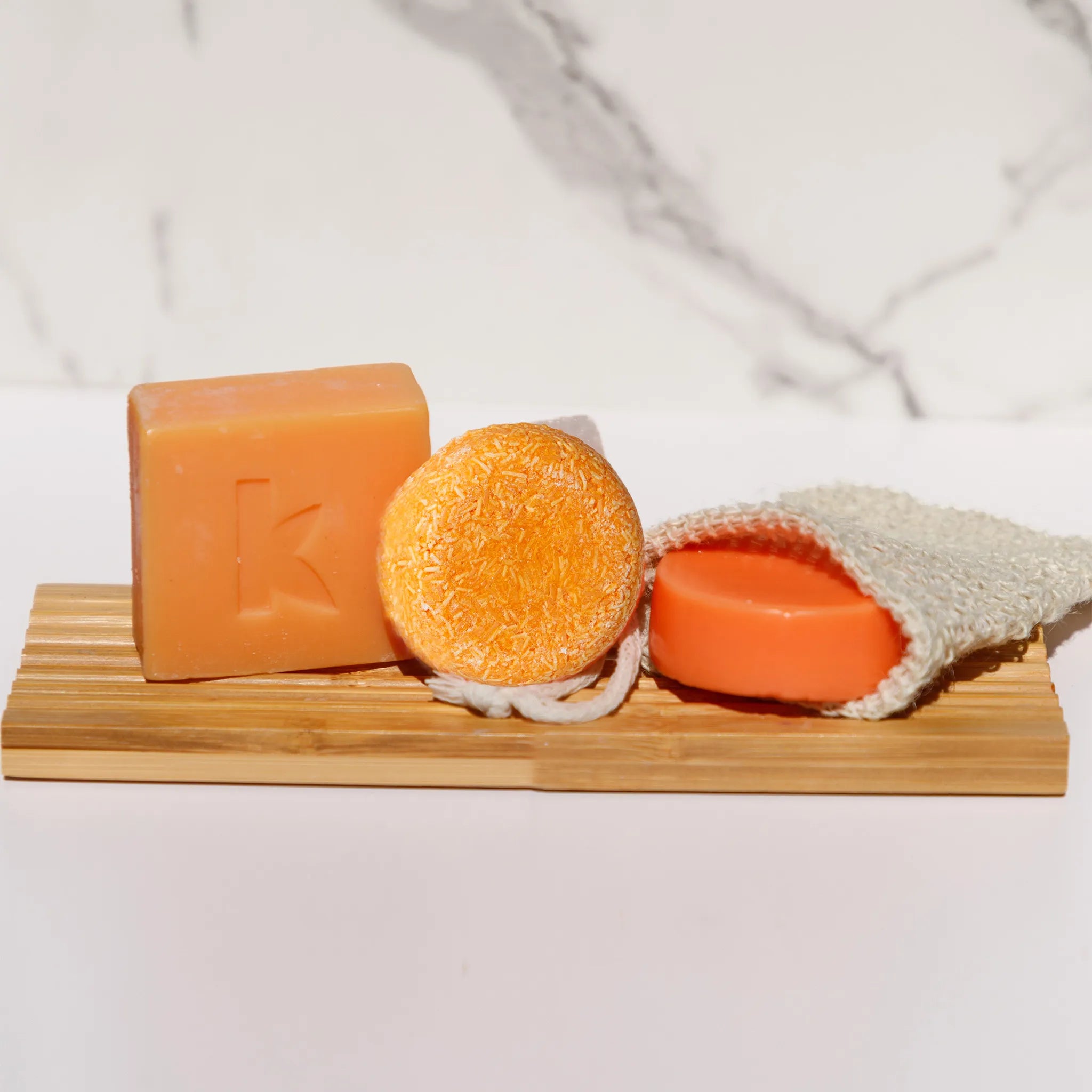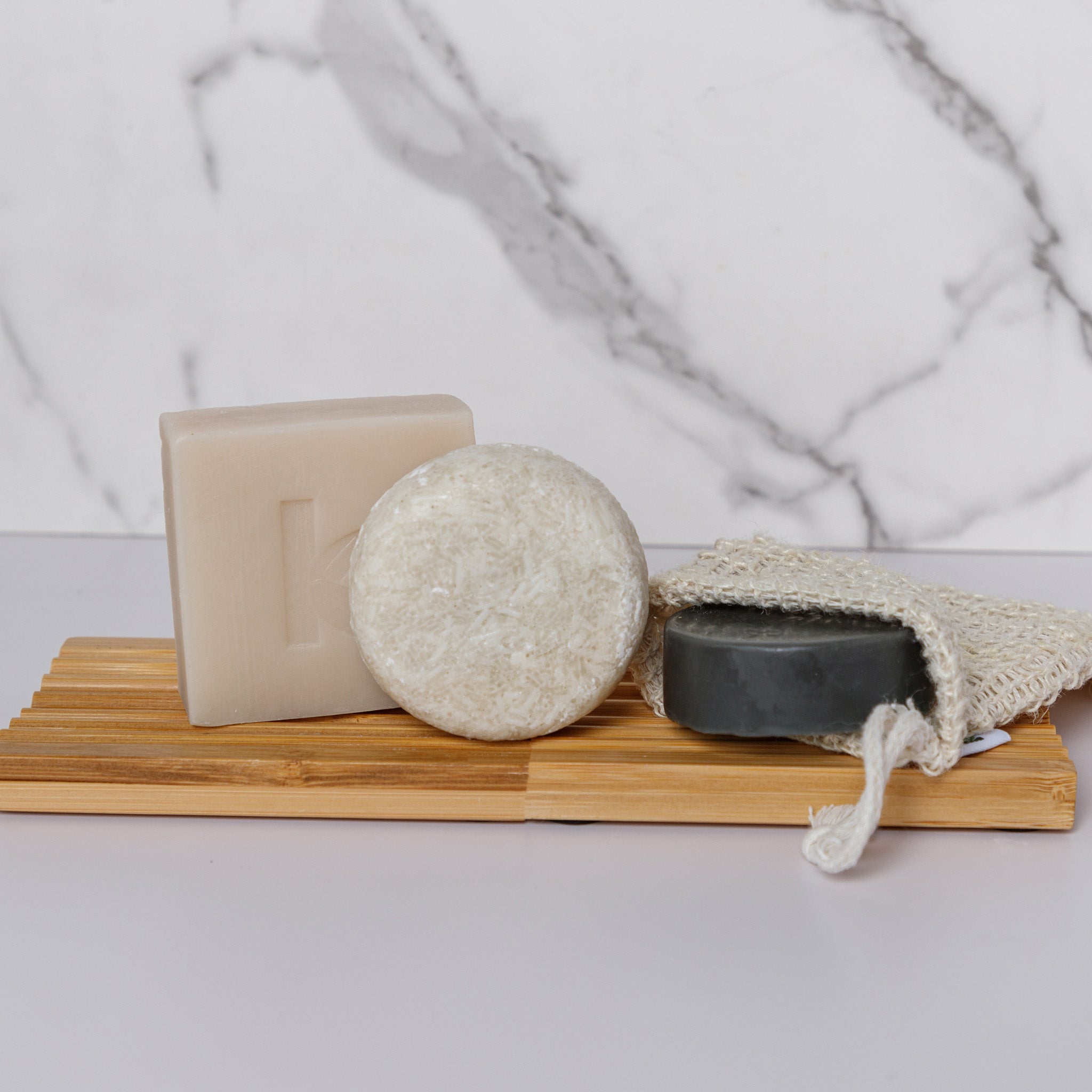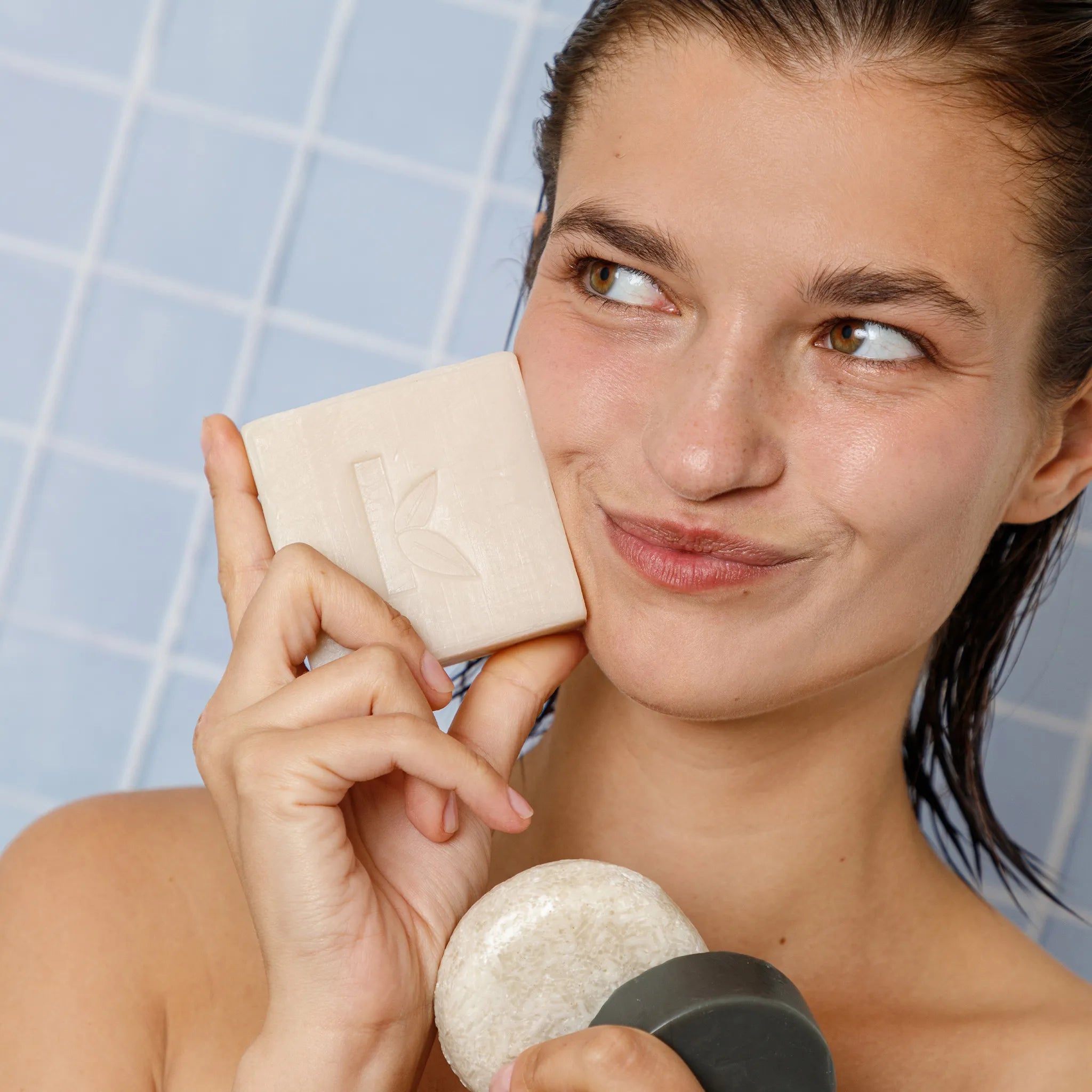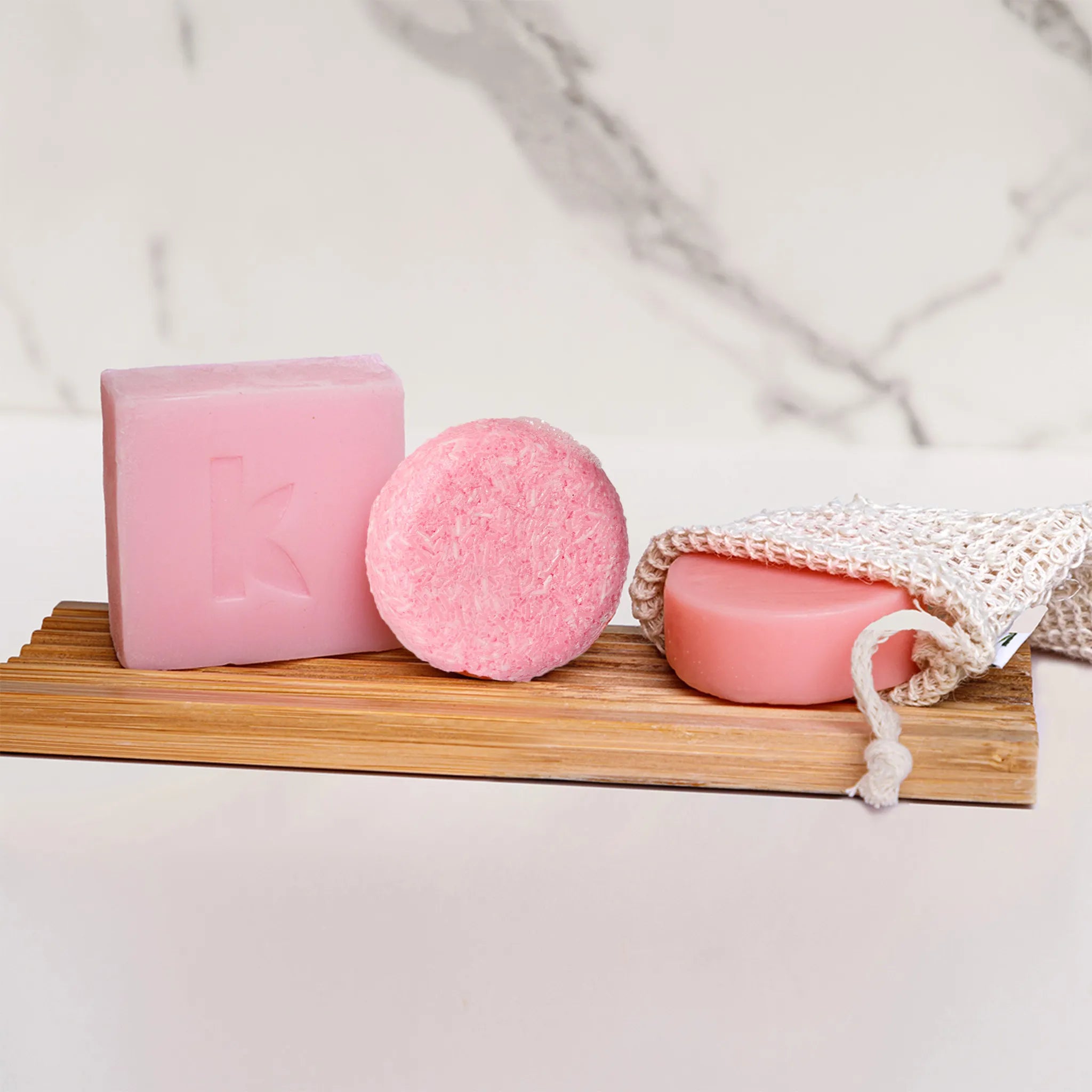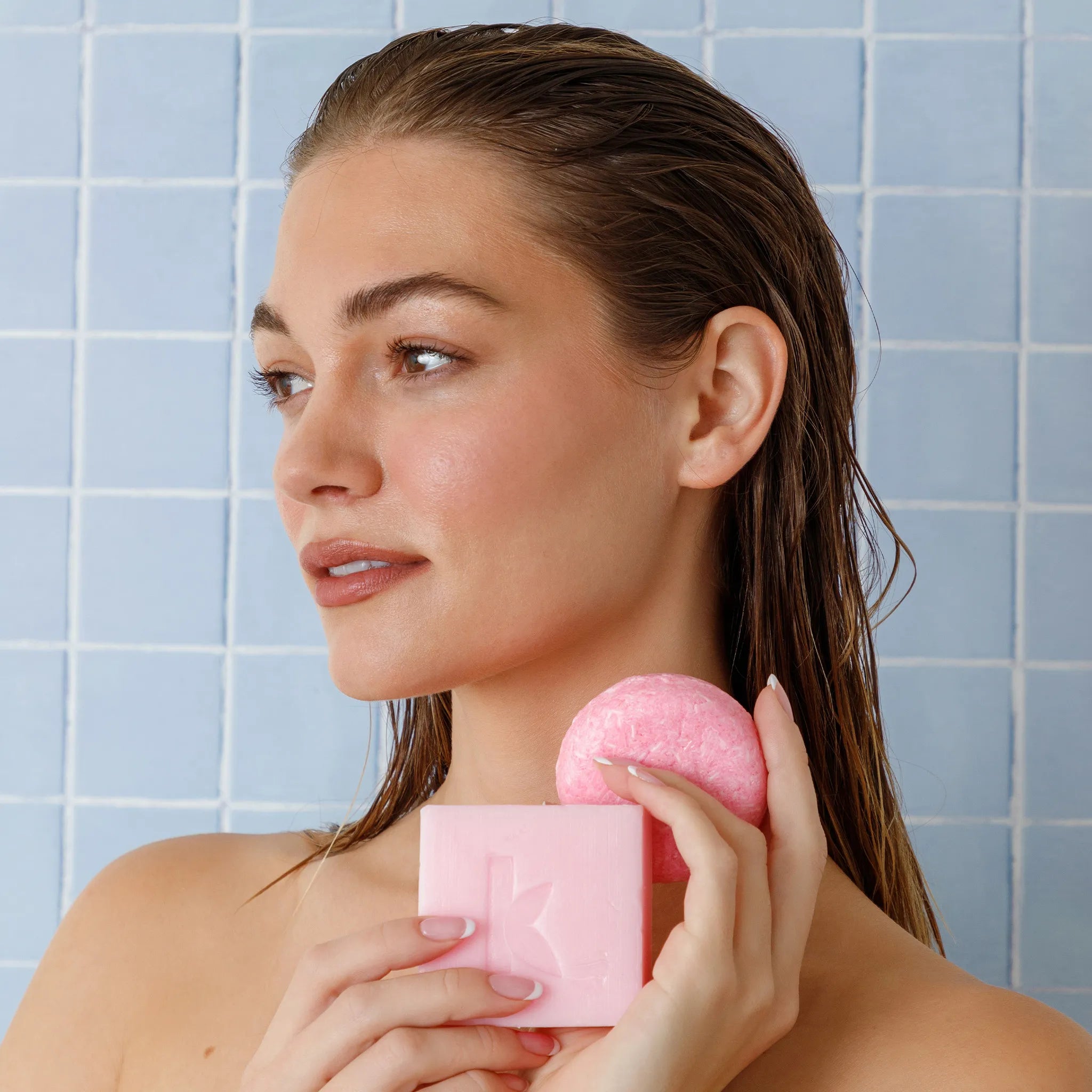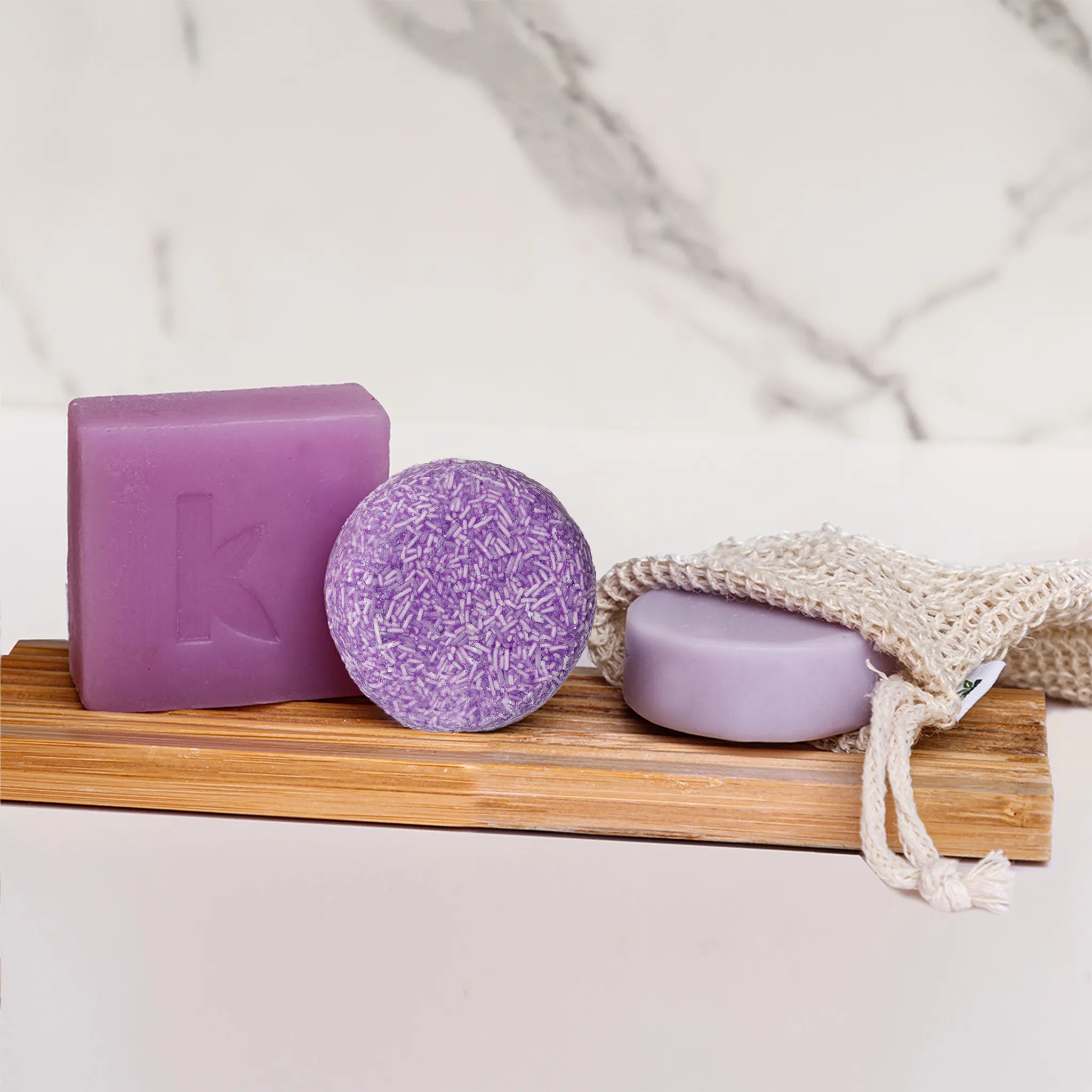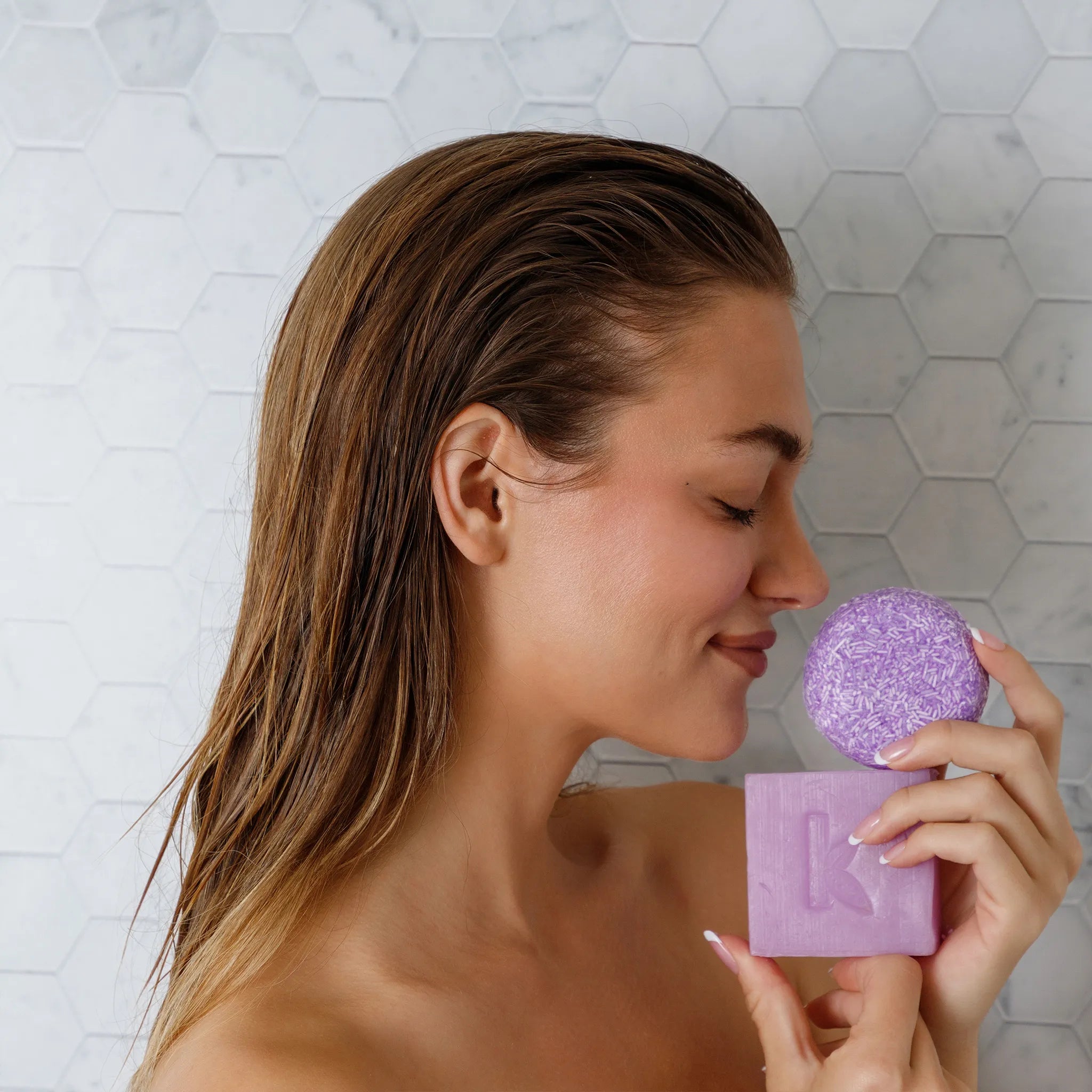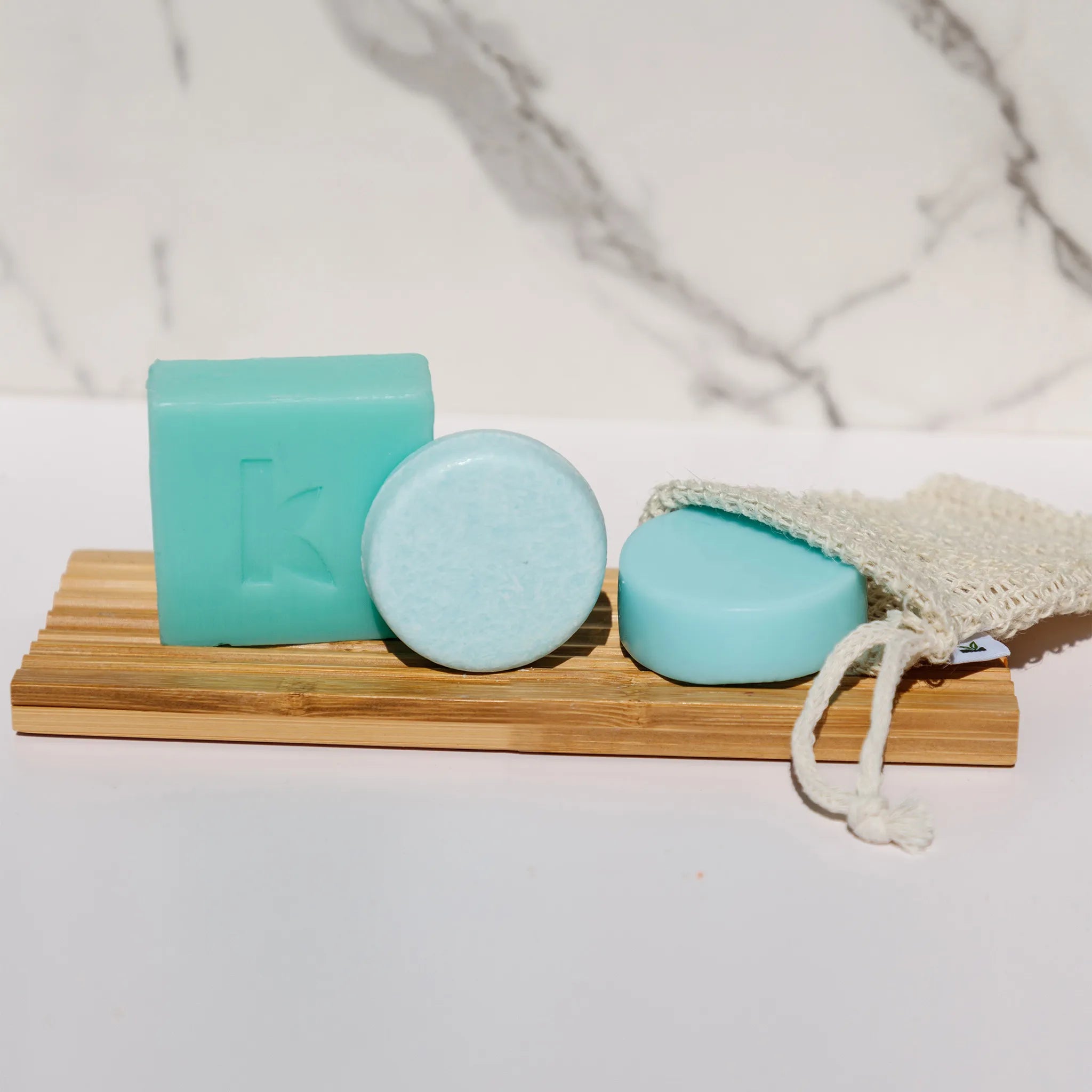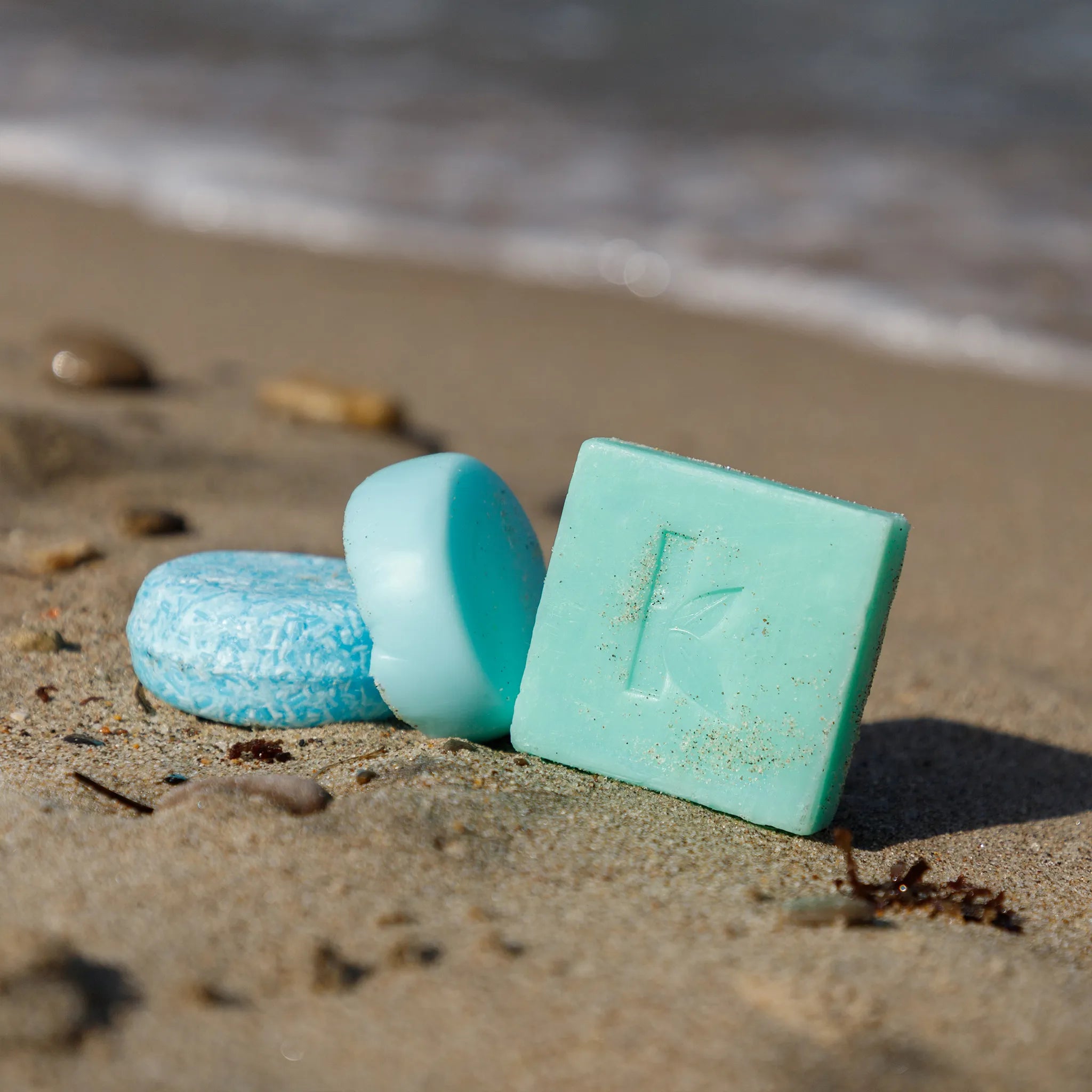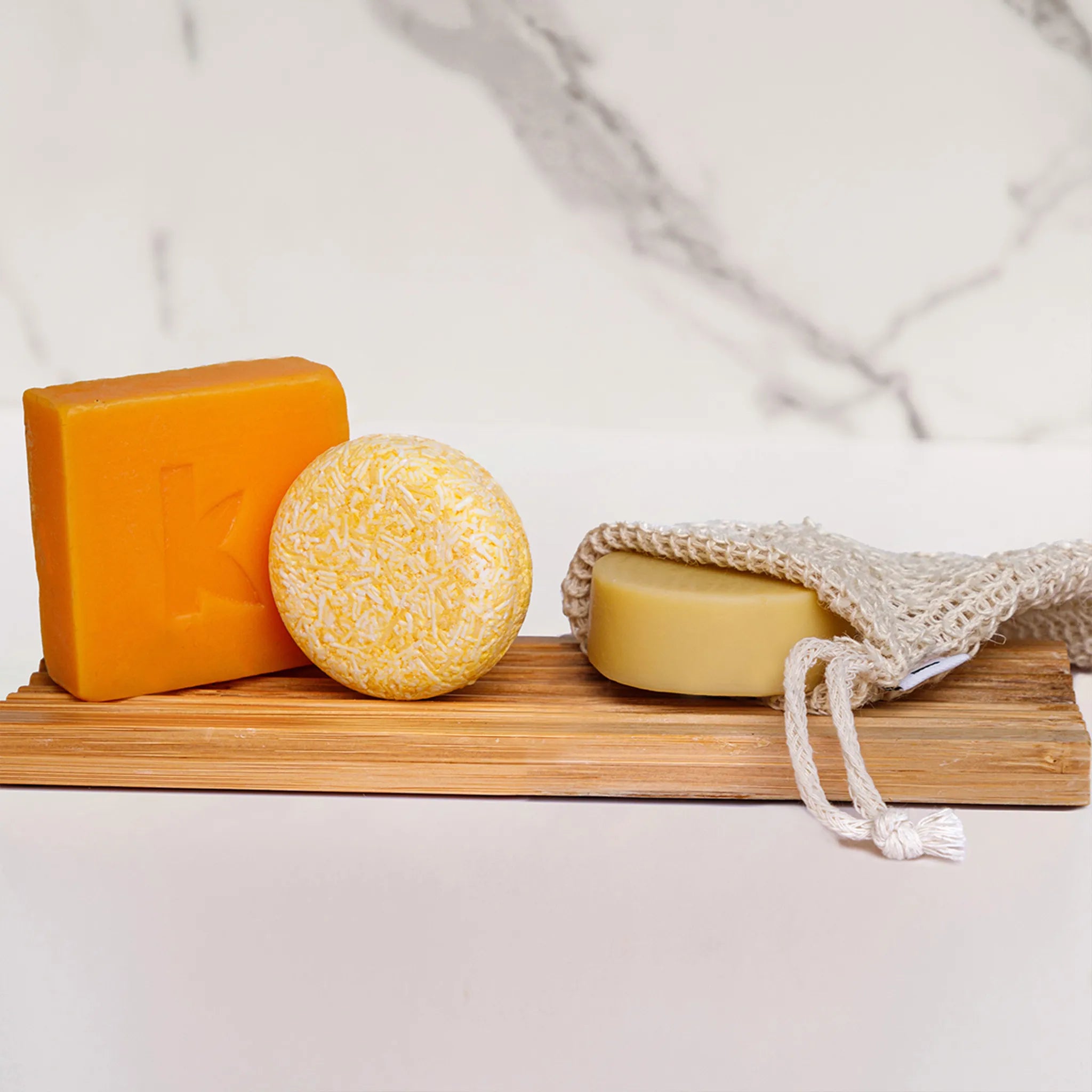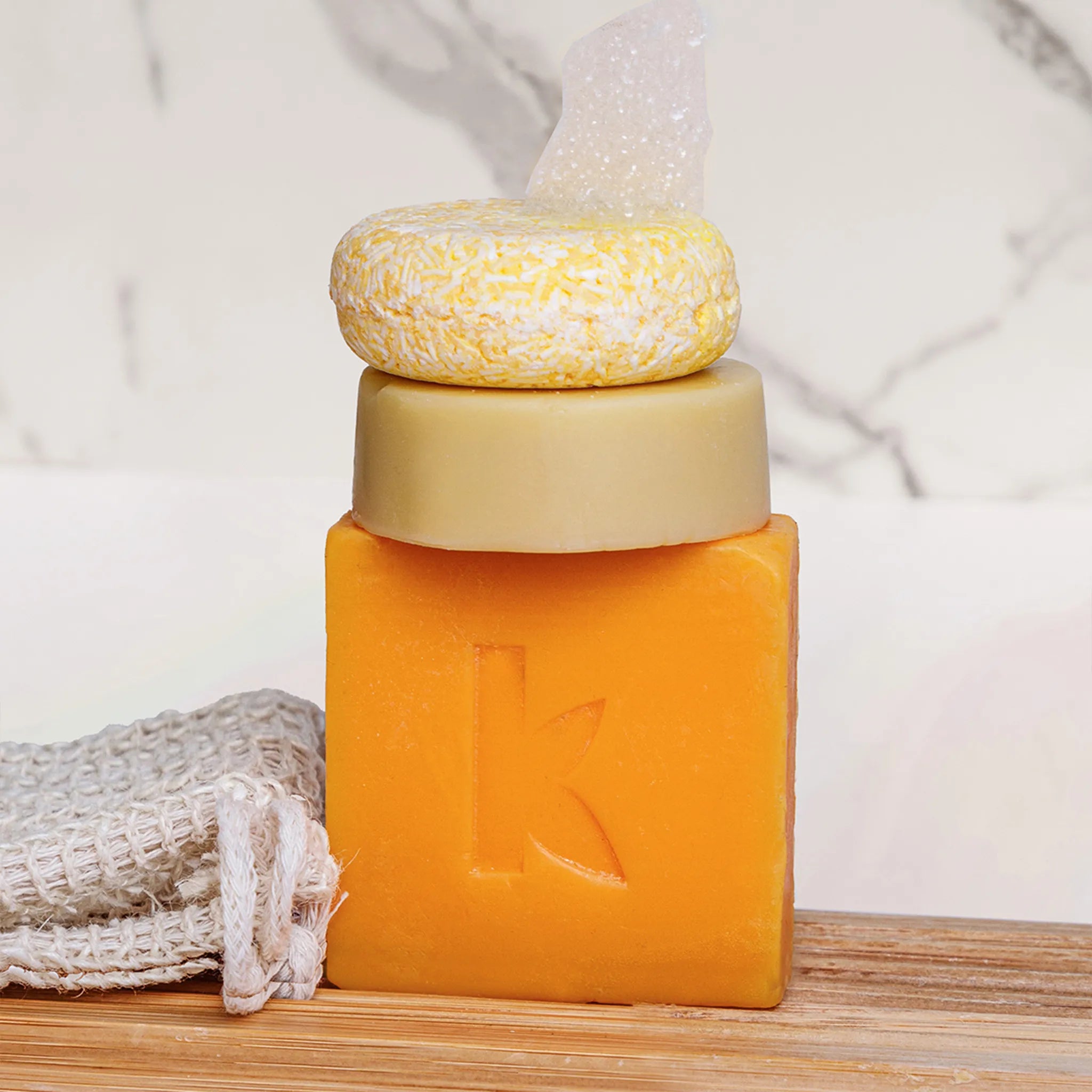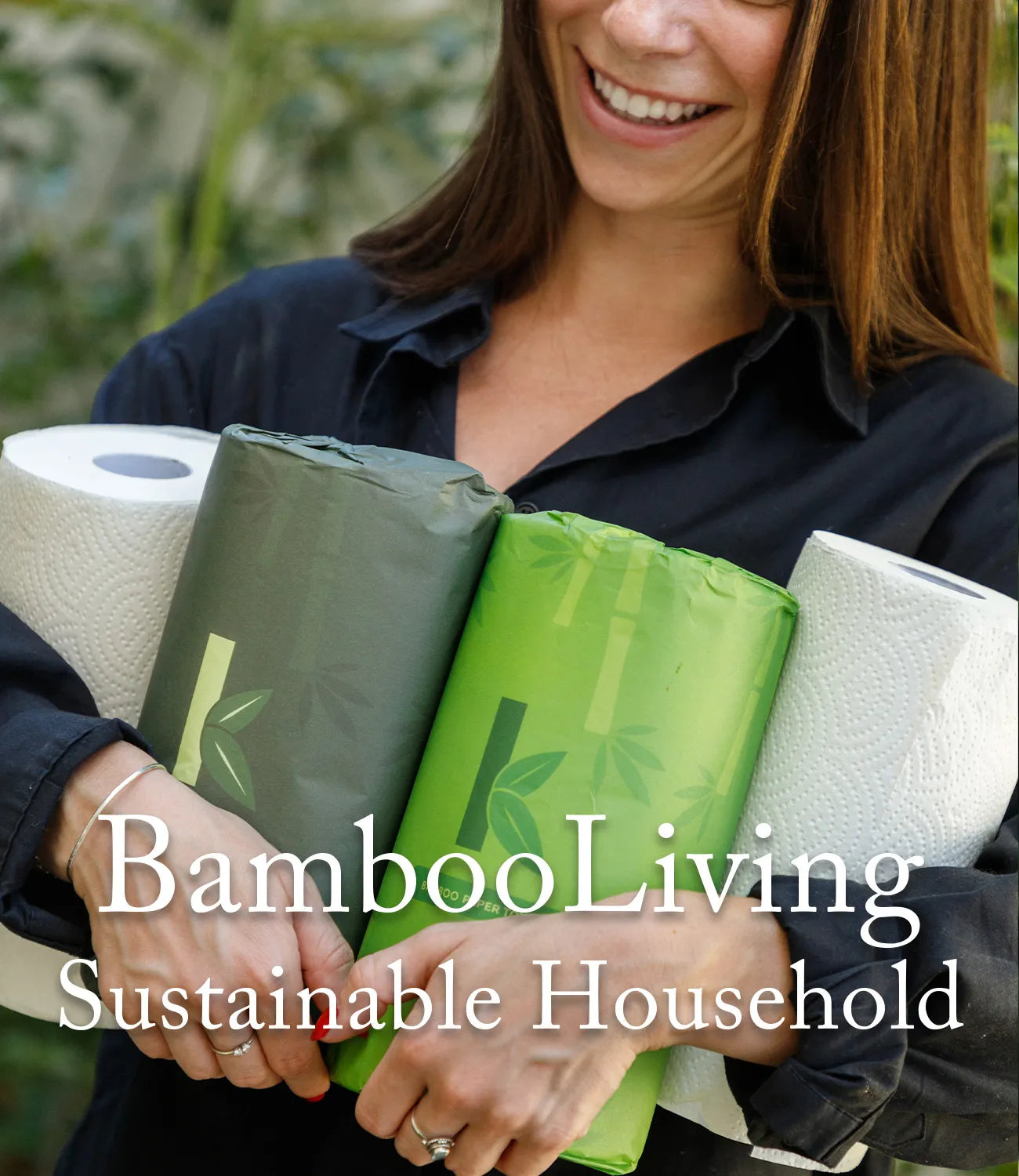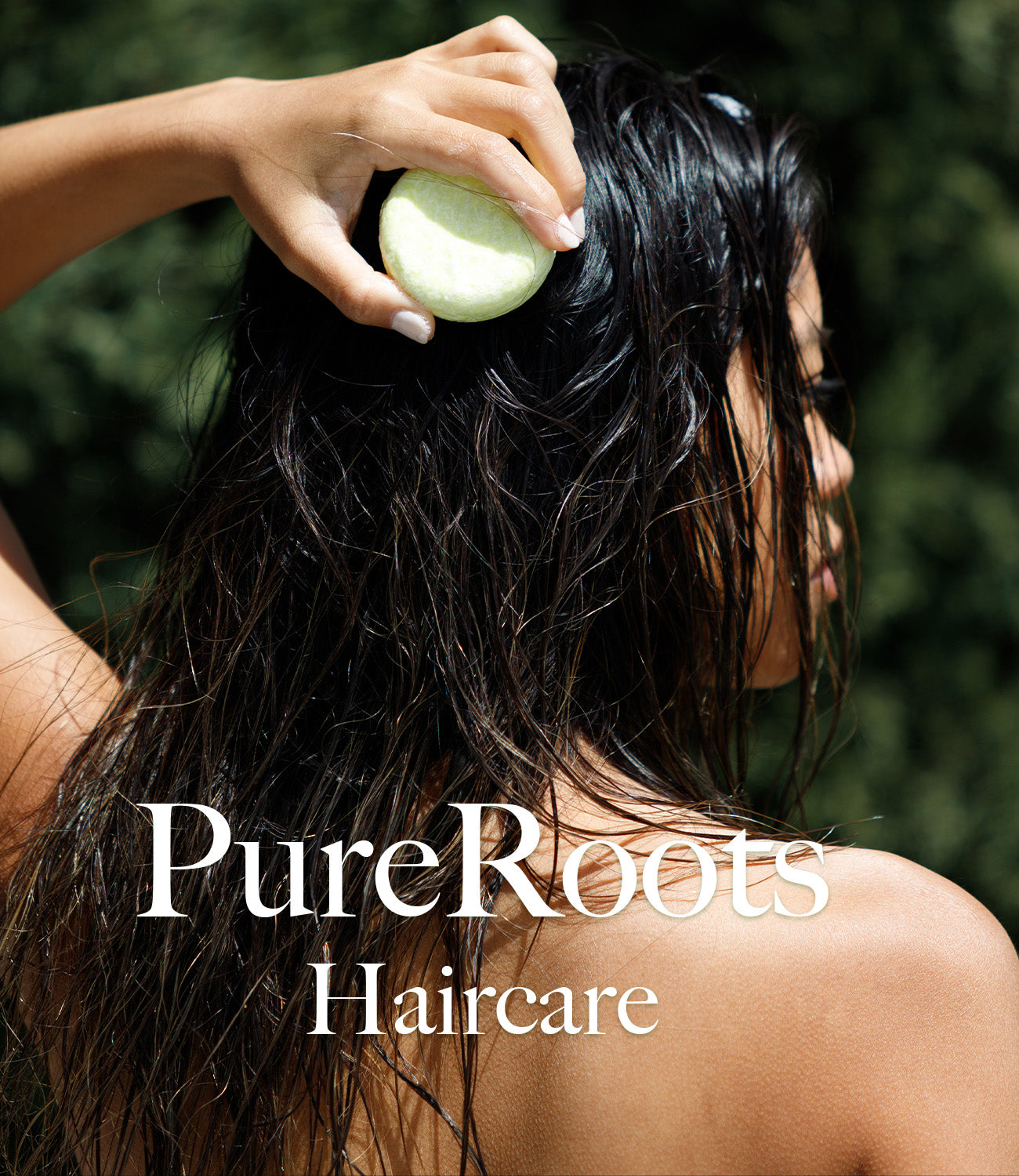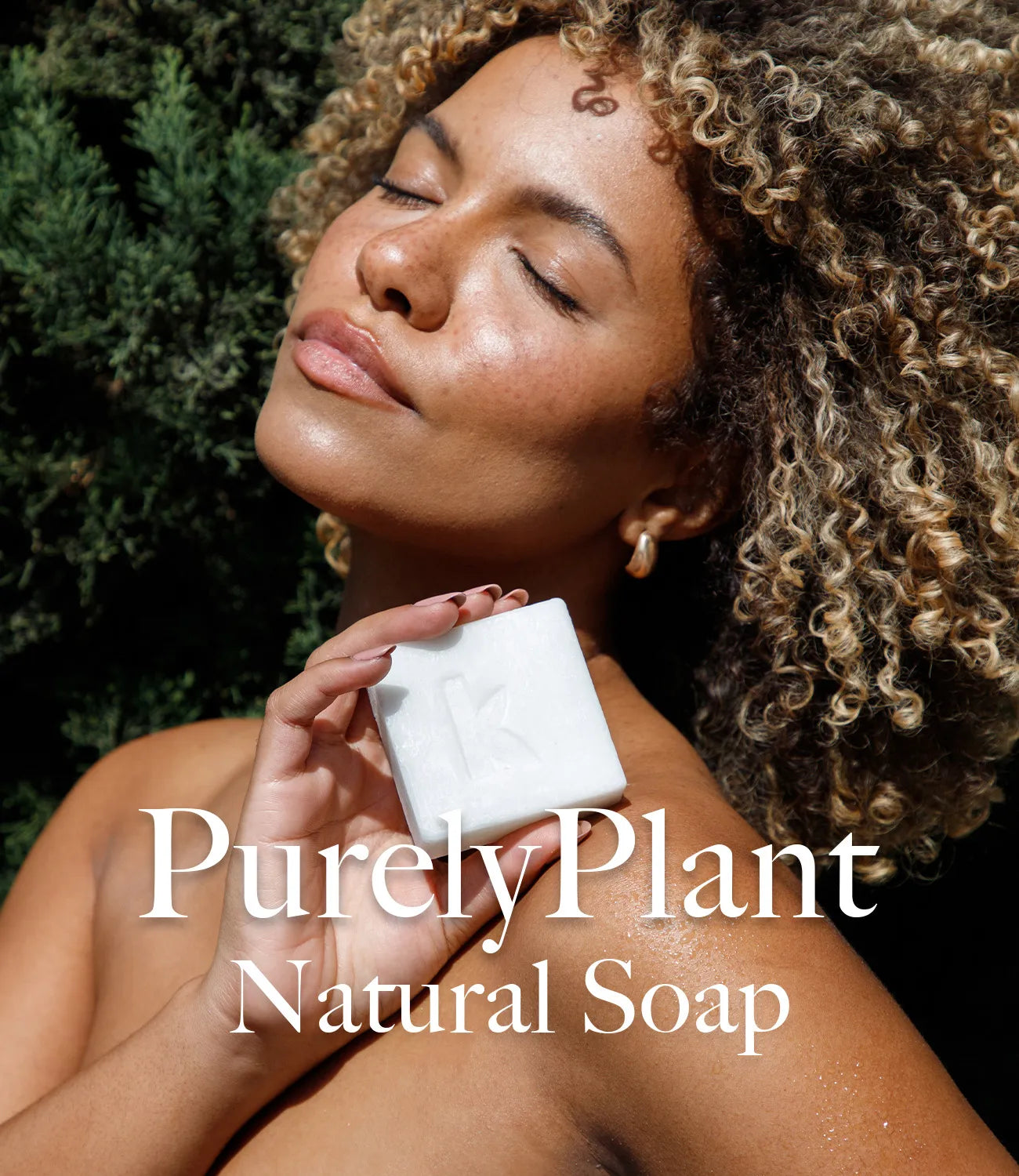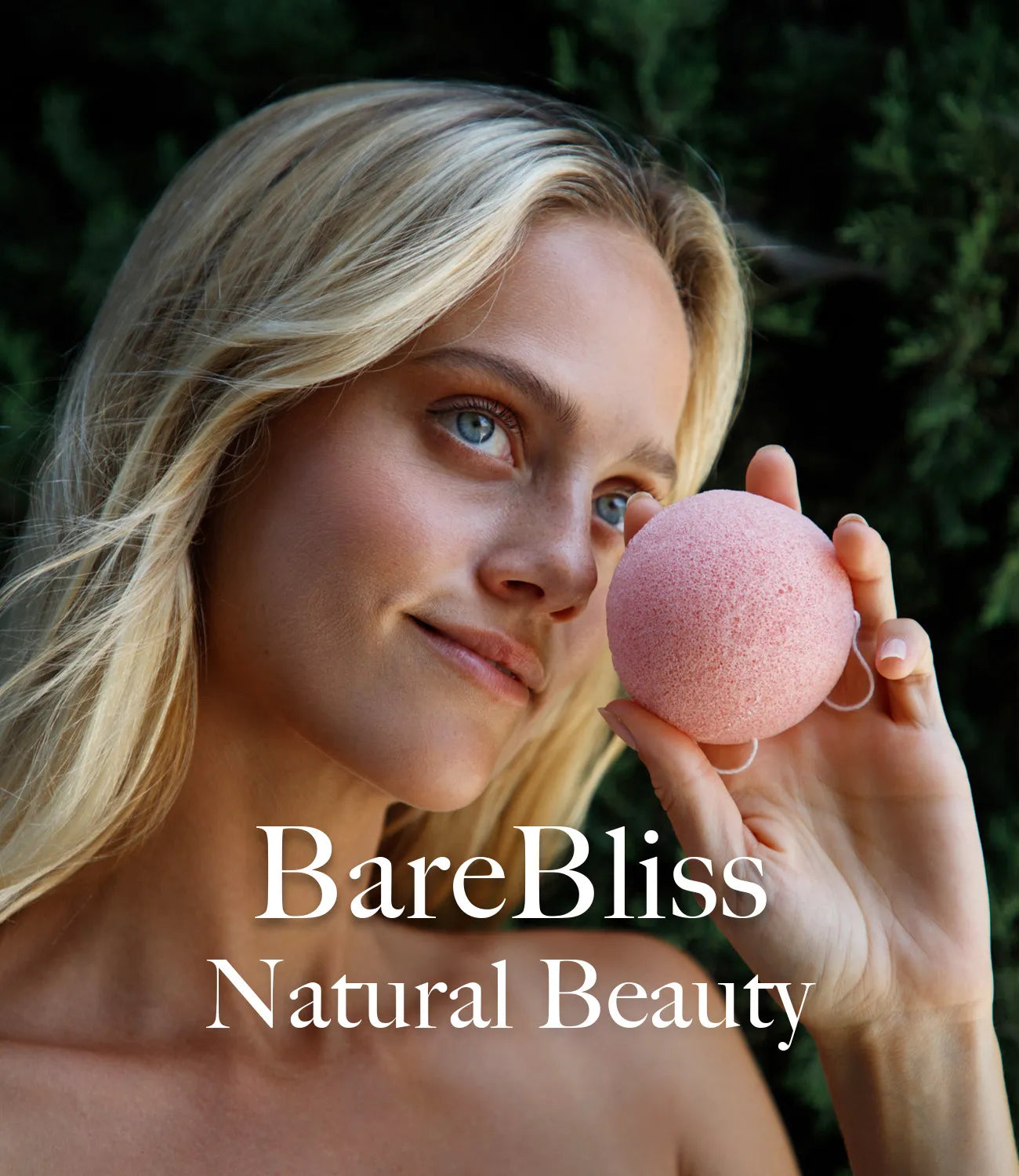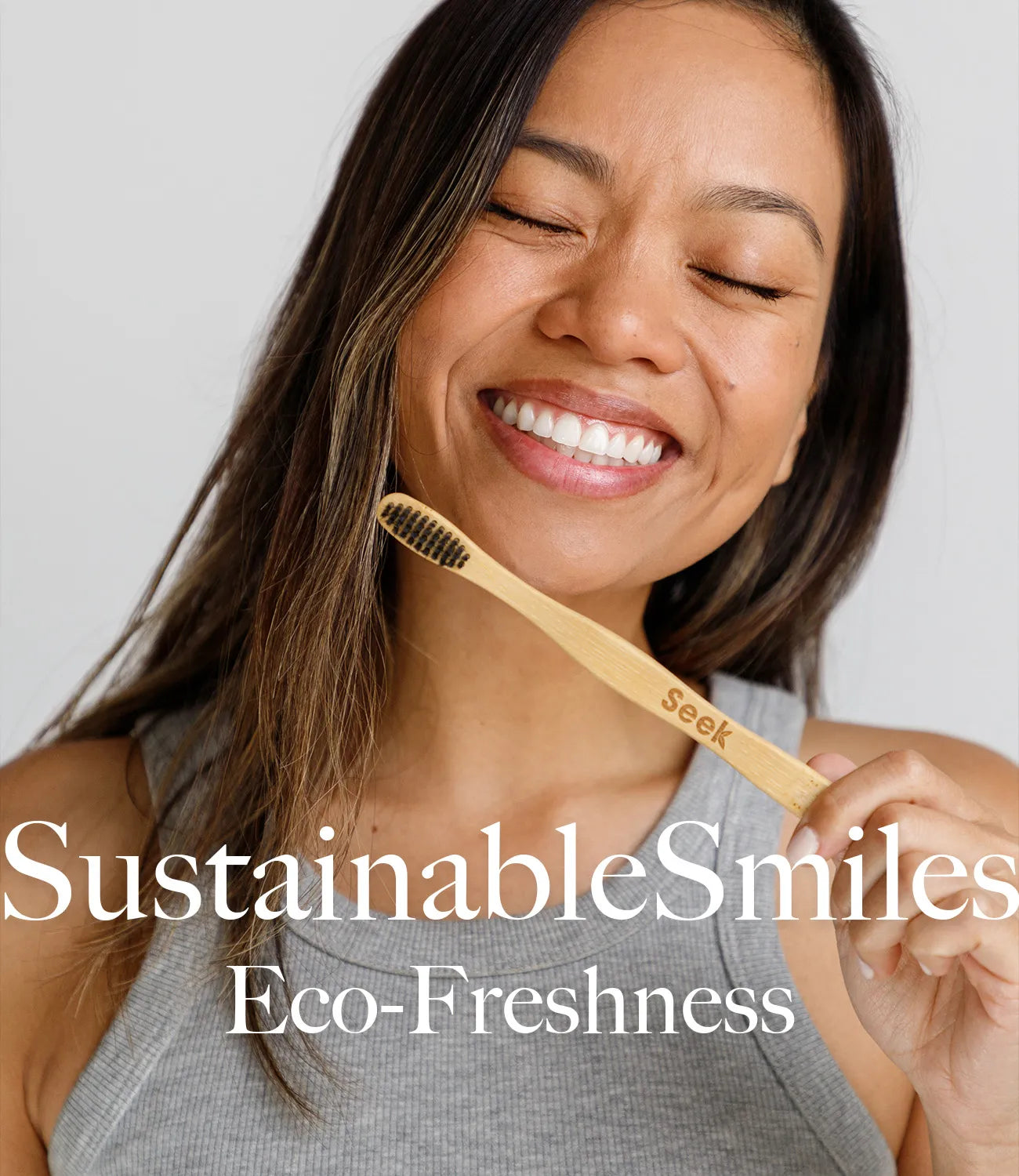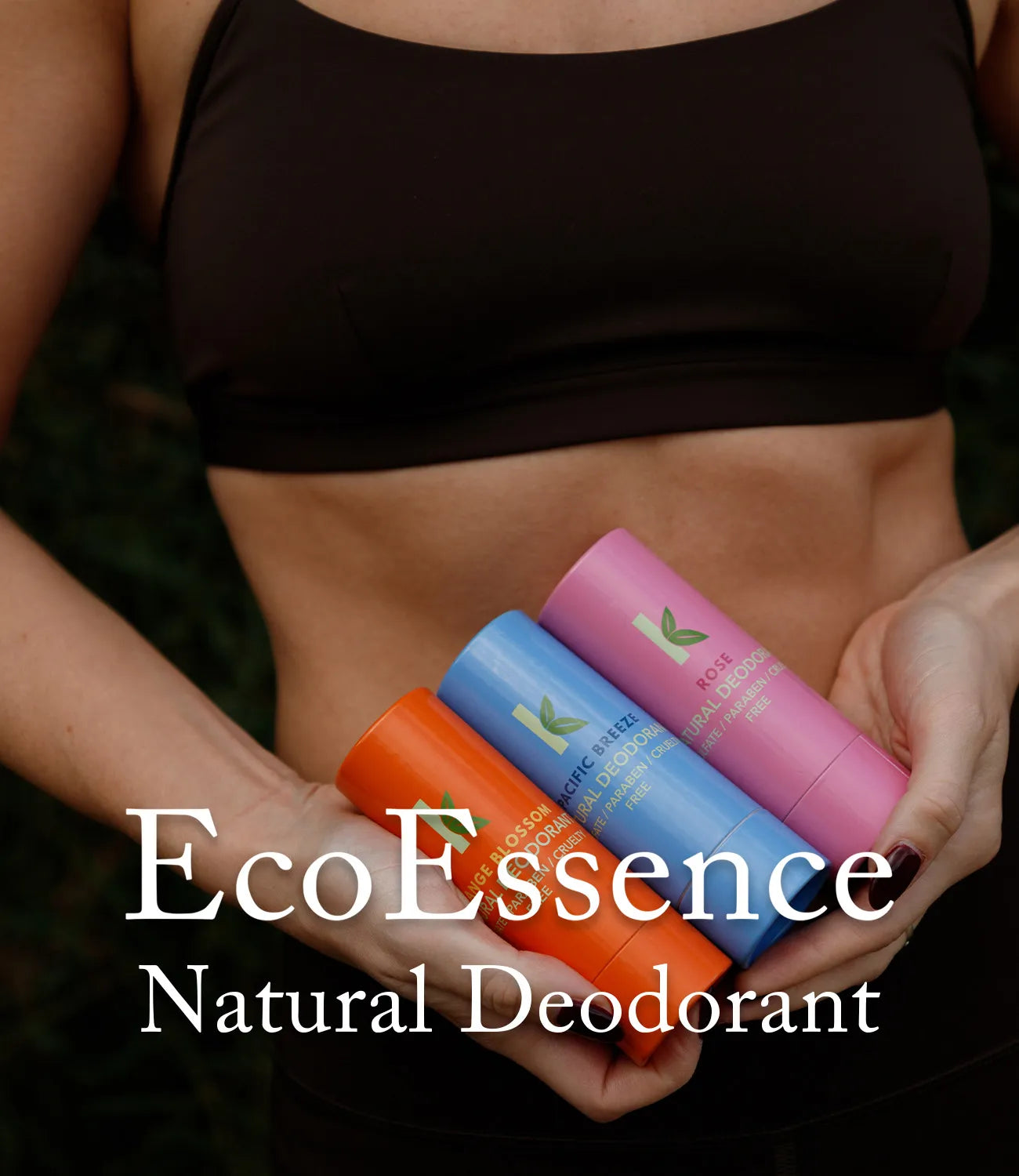Bamboo Products
Imagine a world where every product you use enhances your life and nurtures the planet. That's the world Seek Bamboo is creating, one bamboo innovation at a time. Here, we blend style with sustainability, offering a range of bamboo products that are as functional as they are eco-friendly. From your morning routine to your nightly unwind, our collection infuses a slice of environmental consciousness into every aspect of your day. Discover the difference with Seek Bamboo – where each item carries a promise of a greener future.
Sustain Your Smile: The Essential Kit!
Dive into a refreshing routine with our curated collection: bamboo toothbrush, stand, case, eco-friendly floss, and toothpaste tabs. Kickstart your sustainable journey confidently; every essential in one kit, every choice kinder to our planet.
Bamboo-zled No More: Your Guide to All Things Bamboo!
Frequently Asked Questions For Bamboo Products
What makes bamboo an eco-friendly material?
You bet! Focusing on the incredible oral care benefits derived from just nine vegan-friendly components our toothpaste tablets boast the same strength as conventional paste, ensuring those chompers stay cavities-free. Plus, without the need for water during production, it's a win-win for your teeth and the planet.
Seek Bamboo's Toothpaste Tabs offer a refreshing approach to oral care with an eco-conscious twist. Transform your daily brushing routine into a new sustainable experience unlike anything you've ever imagined.
Are bamboo products biodegradable?
Bamboo products are remarkably durable. Bamboo fibers are naturally strong and can withstand a good amount of wear and tear. This strength, coupled with proper care, allows bamboo products like utensils, furniture, and flooring to last for years. Its tensile strength can rival, and sometimes even exceed, that of steel!
How durable are bamboo products?
Yes, bamboo products are biodegradable. Unlike plastics and other synthetics, bamboo breaks down and decomposes into the environment without leaving harmful residues. However, the rate of biodegradation depends on the product and how it’s processed. Pure bamboo products decompose faster than those mixed with synthetic materials.
Can bamboo products be recycled?
While bamboo itself is a natural and biodegradable material, its recyclability often depends on the product's composition. Pure bamboo items can be composted, but those treated with chemicals or combined with other materials might not be recyclable in the traditional sense. It's always best to check with local recycling guidelines.
How do I care for and maintain bamboo products?
Caring for bamboo products is generally straightforward. Avoid soaking them in water for extended periods and don't expose them to extreme temperatures. For cleaning, a mild soap and water solution works well, followed by air drying. Regular oiling with food-grade mineral oil can help maintain bamboo kitchenware.
What are the benefits of using silk floss?
Not only is silk floss strong and effective, but it's also compostable. It offers a luxurious glide between teeth and ensures your oral care routine is as green as it gets.
Are bamboo products safe for health?
Absolutely, bamboo products are safe for health, especially when they are natural and untreated. Bamboo possesses natural antibacterial and antifungal properties. However, it's important to ensure that bamboo products, particularly those used for eating or cooking, are free from harmful chemicals or toxins.
What types of products can be made from bamboo?
Bamboo's versatility allows for a wide range of products, including kitchenware like cutting boards and utensils, textiles like clothing and towels, bathroom essentials like toothbrushes, and even structural materials like bamboo flooring and furniture.
How does bamboo compare to wood in terms of sustainability?
Bamboo is often more sustainable than traditional wood. It grows faster, requires less agricultural input, and can be harvested without killing the plant, allowing for more frequent harvesting. This sustainable growth cycle makes bamboo a more environmentally friendly choice compared to slow-growing trees.
Are bamboo toothbrushes better than plastic toothbrushes?
Bamboo toothbrushes offer several advantages over traditional plastic ones, primarily from an environmental perspective:
- Eco-Friendliness: Bamboo is a sustainable material since it grows quickly, requires no pesticides, and biodegrades much faster than plastic. This makes bamboo toothbrushes a more eco-friendly option compared to plastic toothbrushes which can take hundreds of years to break down in landfills.
- Biodegradability: The handles of bamboo toothbrushes are naturally biodegradable, meaning they can decompose in a compost environment, reducing landfill waste.
- Antimicrobial Properties: Bamboo has natural antimicrobial properties, which can help reduce bacteria buildup on the brush itself. This isn't a substitute for cleaning and drying your toothbrush properly, but it is a nice added benefit.
- Reduced Plastic Waste: By opting for bamboo, you reduce the demand for plastic products, contributing to a decrease in overall plastic waste, which is a major environmental concern.
Is bamboo cultivation beneficial to the environment?
Yes, bamboo cultivation has several environmental benefits. It helps in soil conservation, prevents erosion, purifies the air, and even provides a habitat for wildlife. Bamboo forests are efficient at absorbing carbon dioxide, which is crucial in the fight against climate change.
What is the difference between bamboo and bamboo viscose in products?
Bamboo viscose, or bamboo rayon, is a semi-synthetic fabric derived from bamboo cellulose. While it originates from bamboo, a sustainable resource, the process of converting bamboo into viscose involves chemical treatments. This means that bamboo viscose doesn’t retain all the eco-friendly properties of natural bamboo.
Is Bamboo a Type of Wood?
Bamboo is often mistaken for wood due to its hard, sturdy nature and common use in items typically made of wood. However, it's actually a type of grass, belonging to the Poaceae family. This classification is based on its structural properties and growth patterns, which align more closely with grasses than with woody plants.
Why is Bamboo Considered a Grass?
The classification of bamboo as a grass stems from its botanical characteristics. Like grasses, bamboo grows from its base rather than extending existing branches or trunks. It features a rhizome-rooted system typical of grasses and has hollow, segmented stems, known as culms. Additionally, its rapid growth cycle and perennial nature align it more with grasses than trees.
Does Bamboo Produce More Carbon than Trees?
Bamboo is more efficient in carbon sequestration than many tree species. When bamboo is harvested, it does not die but continues to grow, allowing for continuous carbon absorption. This sustainable harvesting cycle results in a net positive carbon capture over time, as bamboo can grow and store carbon at a faster rate than it releases through decomposition or usage.
Why Does Bamboo Release More Oxygen than Trees?
The high oxygen release from bamboo is attributed to its fast growth and efficient photosynthesis process. Bamboo plants undergo photosynthesis more frequently and effectively than many trees, due to their rapid growth cycles. This continuous cycle of growth and regeneration allows bamboo to produce a significant amount of oxygen, contributing positively to air quality.
Why Is Bamboo Toilet Paper Better?
Bamboo toilet paper offers several compelling advantages over traditional paper made from trees, making it a superior choice for both your personal use and the environment. Here’s why bamboo toilet paper is better:
- Sustainability: Bamboo is one of the fastest-growing plants on Earth, making it a highly sustainable resource. It can grow up to 39 inches in a single day and regrows quickly after being harvested without the need for replanting. This rapid growth cycle means bamboo can be harvested sustainably without causing deforestation, which is a significant issue with traditional wood pulp paper.
- Biodegradability: Bamboo fiber is naturally biodegradable. Unlike some traditional toilet papers that may contain plastics or chemicals, bamboo toilet paper breaks down quickly after use, reducing the likelihood of plumbing problems and lessening its impact on the environment.
- Softness and Strength: Bamboo fibers are naturally strong yet soft, which makes bamboo toilet paper both durable and comfortable. It is less likely to tear during use but is still gentle on the skin, making it ideal for those with sensitive skin.
- Chemical-Free: Bamboo toilet paper is often made without the use of harsh chemicals. Many bamboo toilet papers are free from chlorine bleach, dyes, and scents, which are commonly used in traditional toilet paper production and can be harmful to both health and the environment.
- Carbon Footprint: Bamboo absorbs more carbon dioxide and produces more oxygen compared to equivalent plant masses. Using bamboo to make products like toilet paper helps to better manage carbon balance in the environment.
- Septic Safe: The natural properties of bamboo allow the toilet paper to disintegrate quickly, which makes it safe for septic and sewage systems, including low-flow toilets and those found in RVs and campers.
- Hypoallergenic: Bamboo is naturally hypoallergenic, which reduces the risk of allergies and irritations, making it an excellent choice for people with sensitive skin or allergies.
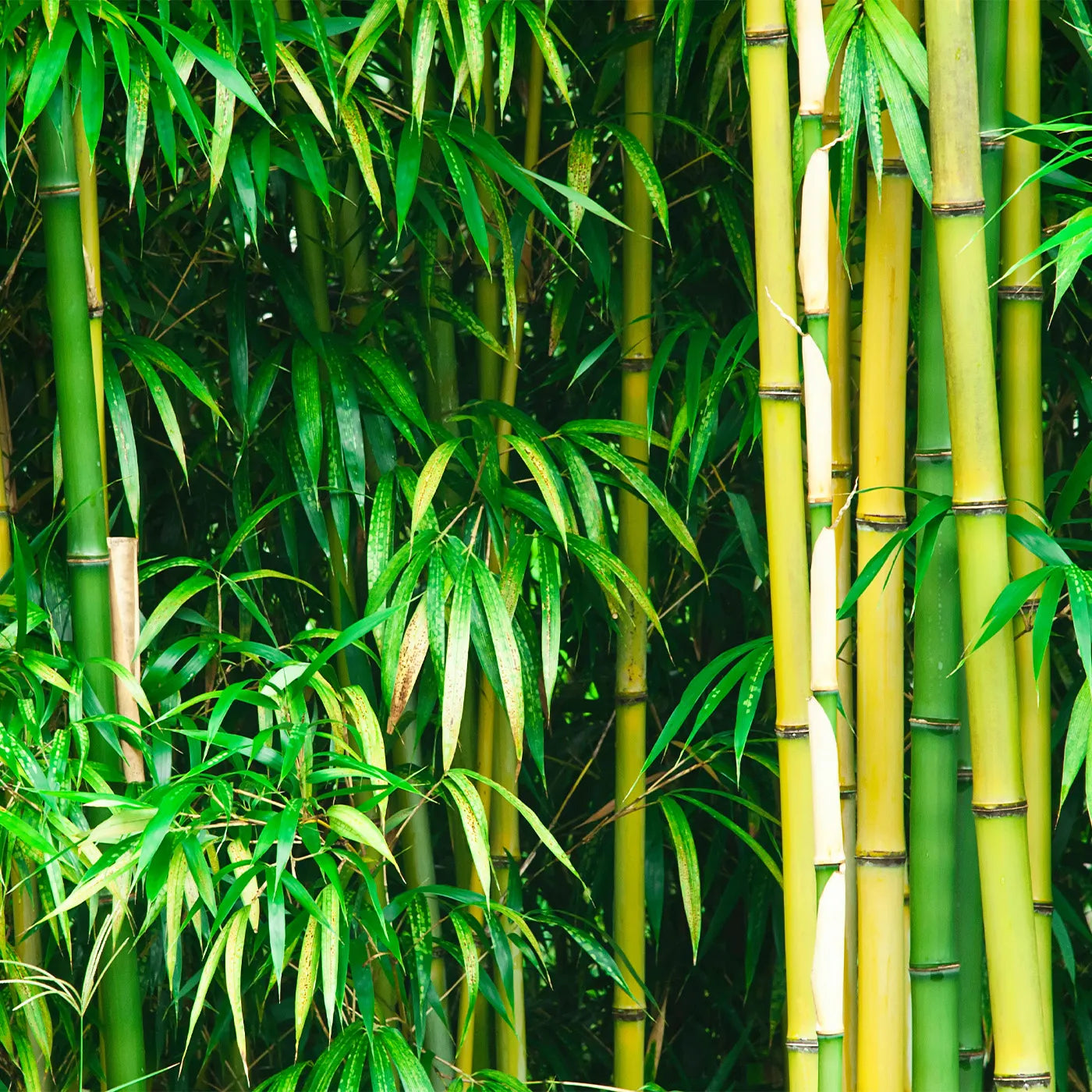
How Fast Does Bamboo Grow?
Learn about bamboo's rapid growth rate and how it is one of the fastest-growing plants on Earth.
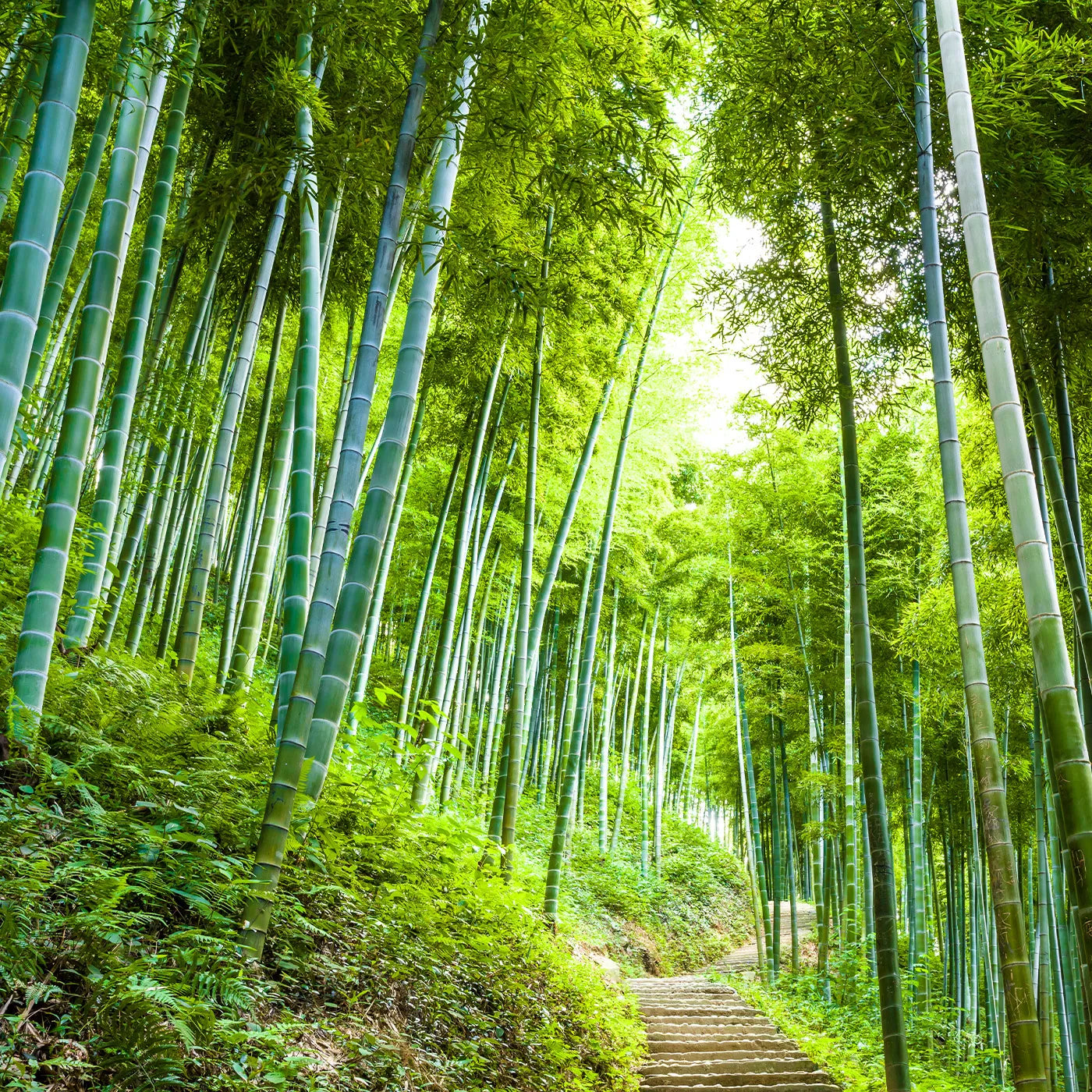
The Best Bamboo Facts
Discover bamboo's wonders in a click: intriguing facts, eco-benefits, and more!





